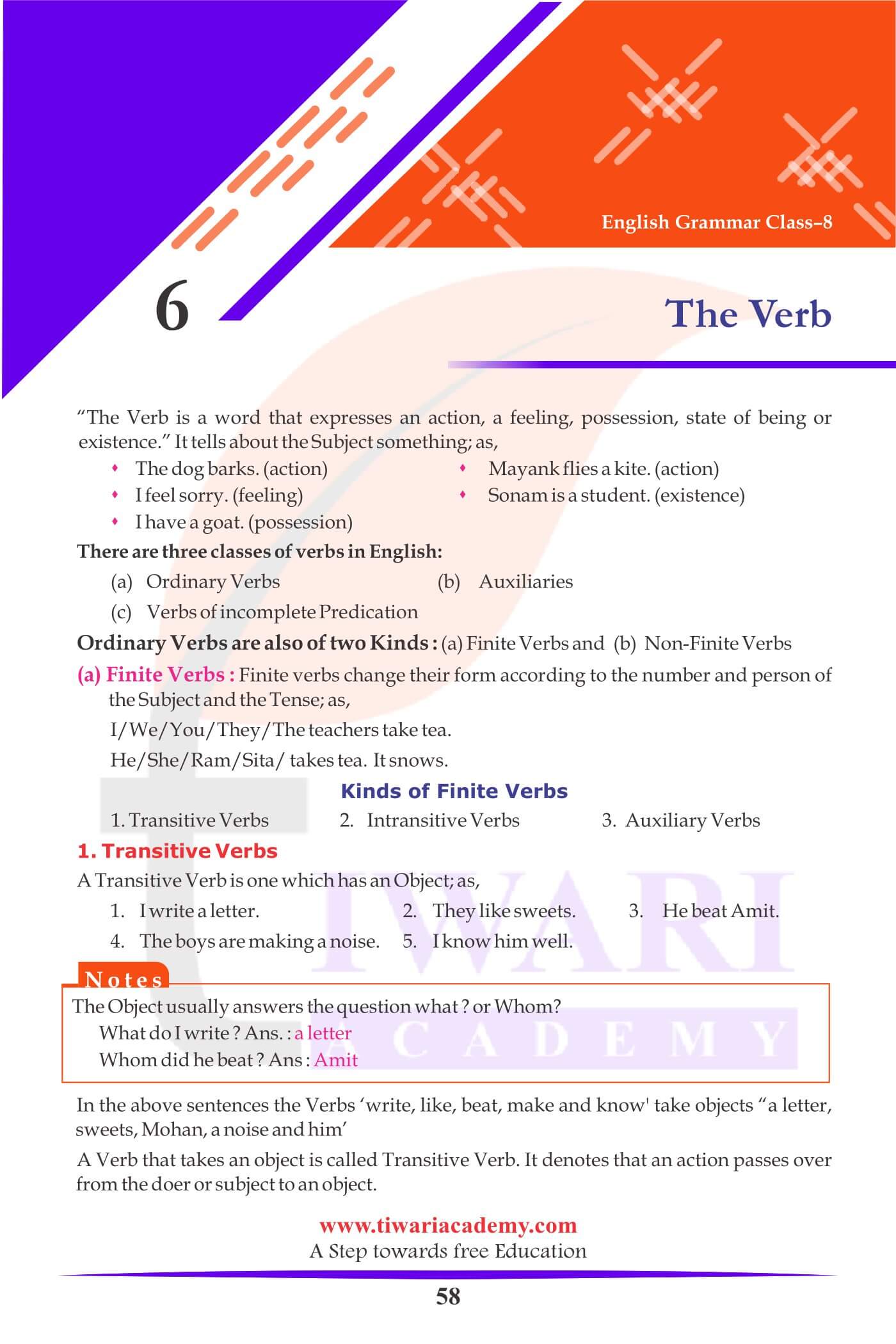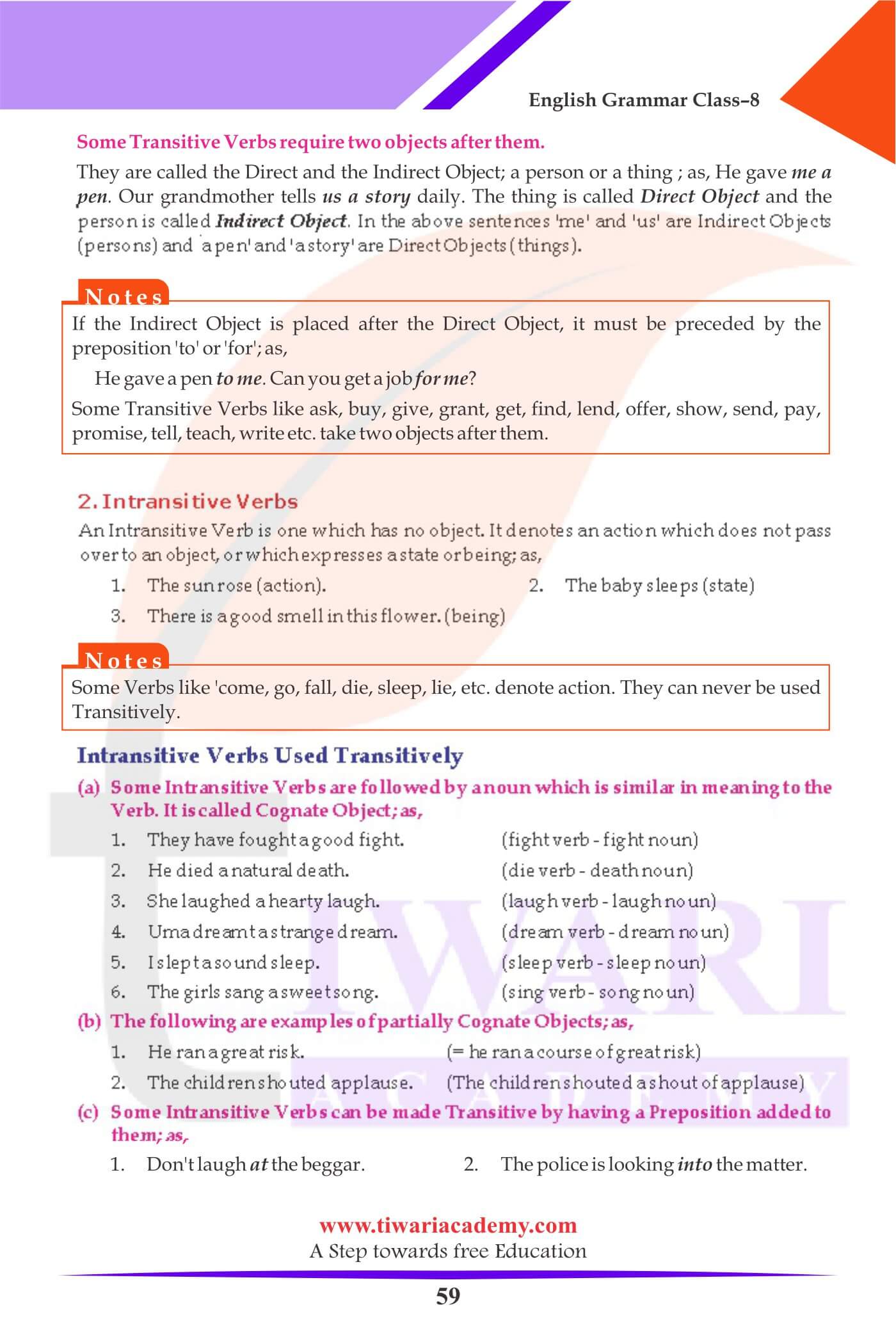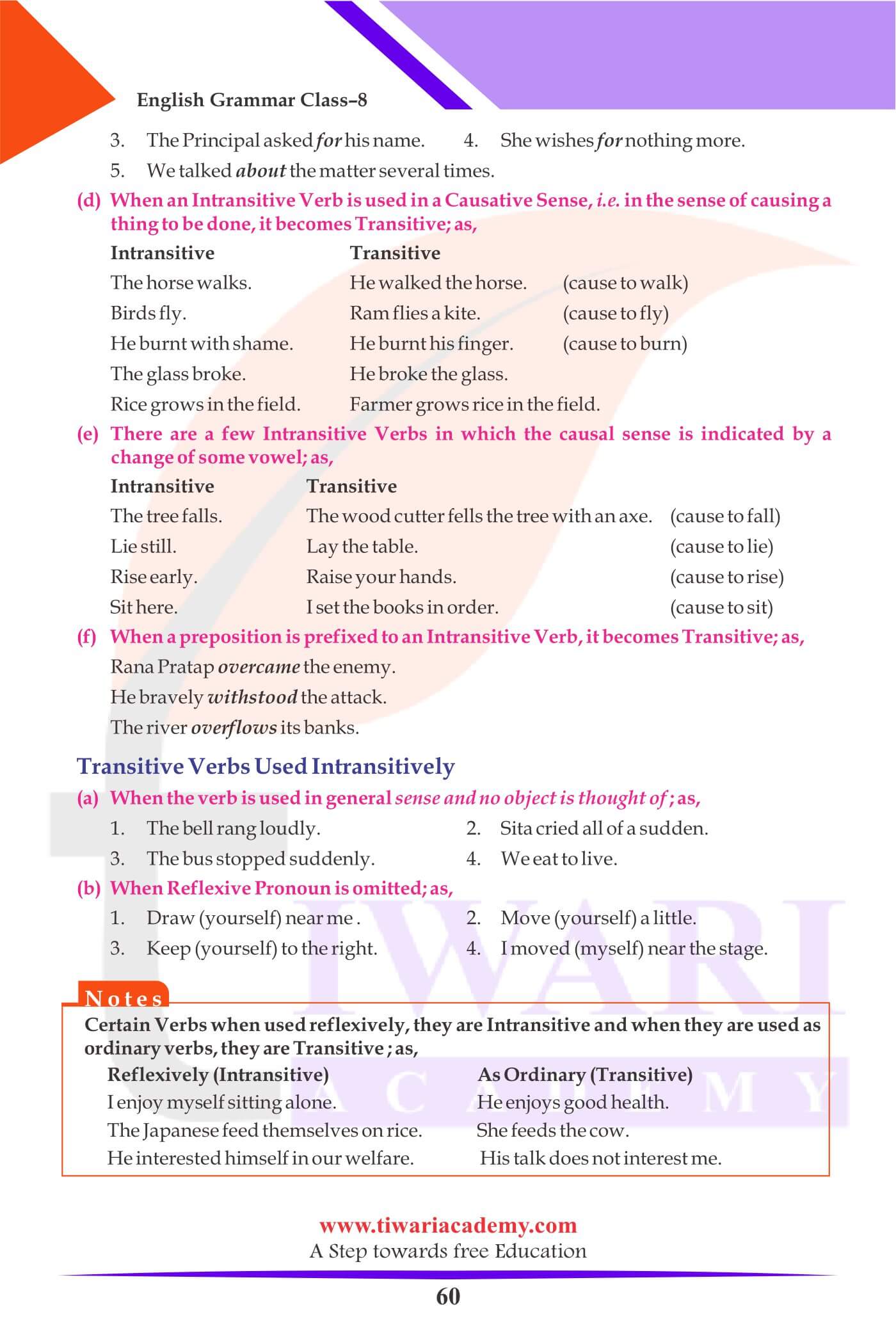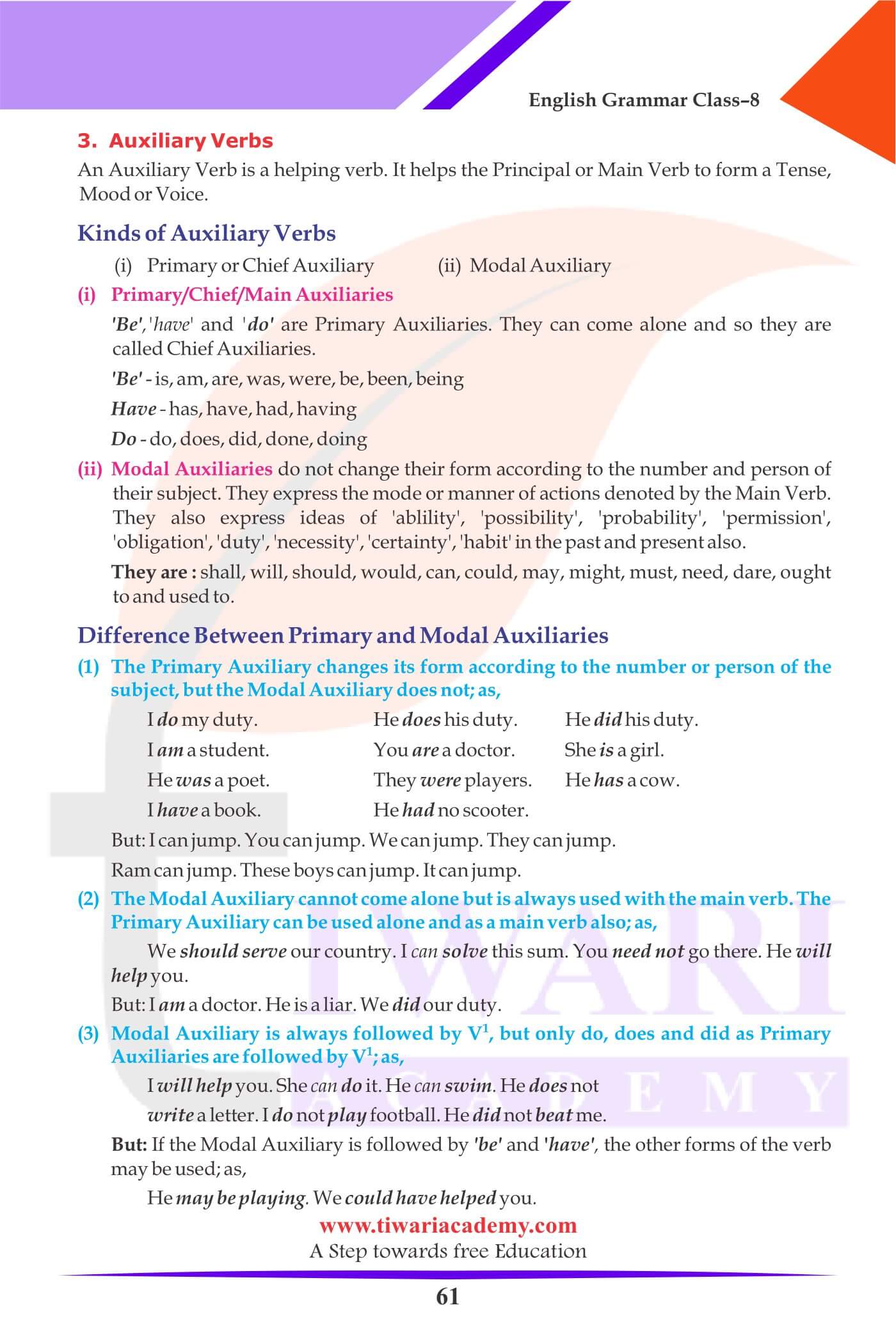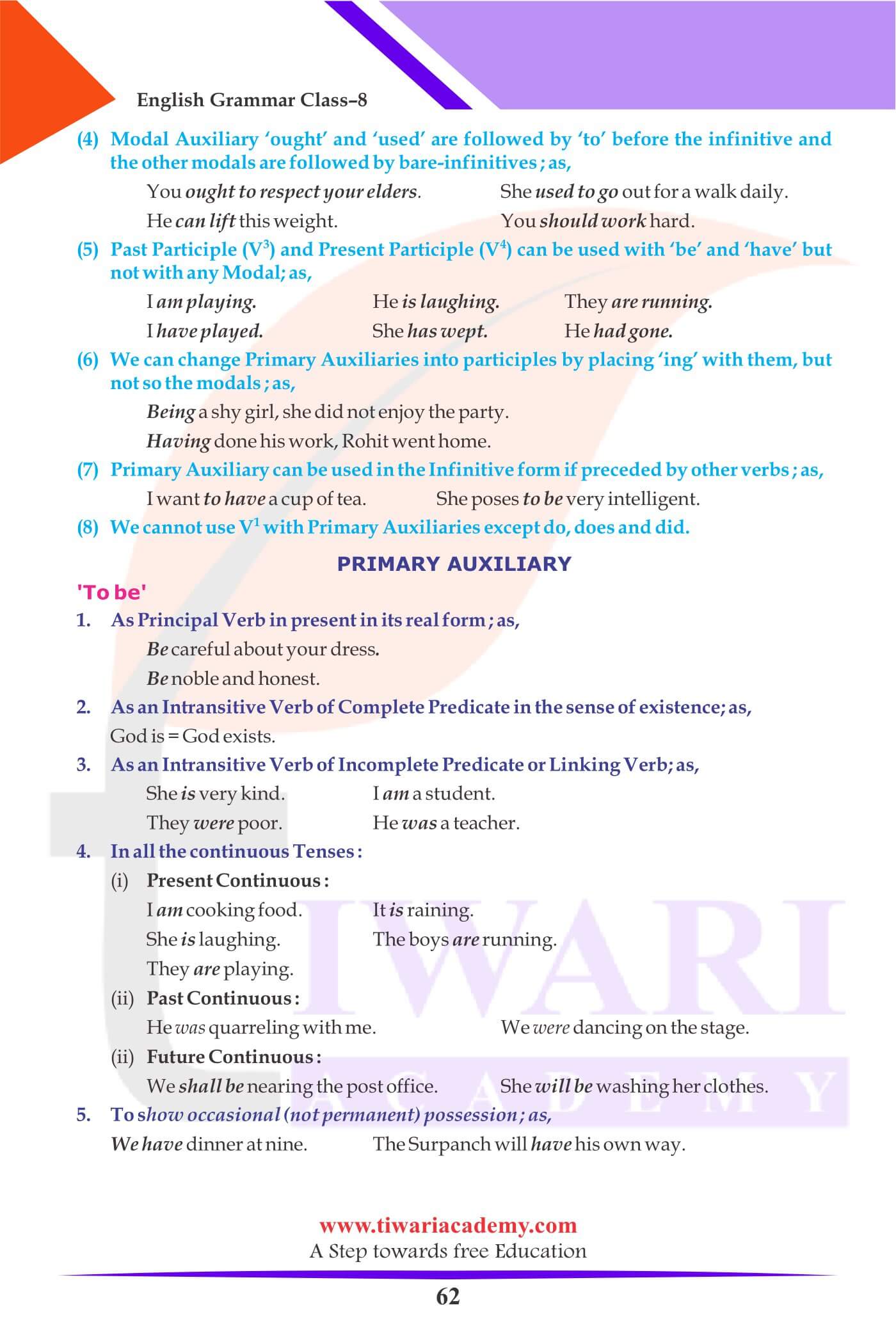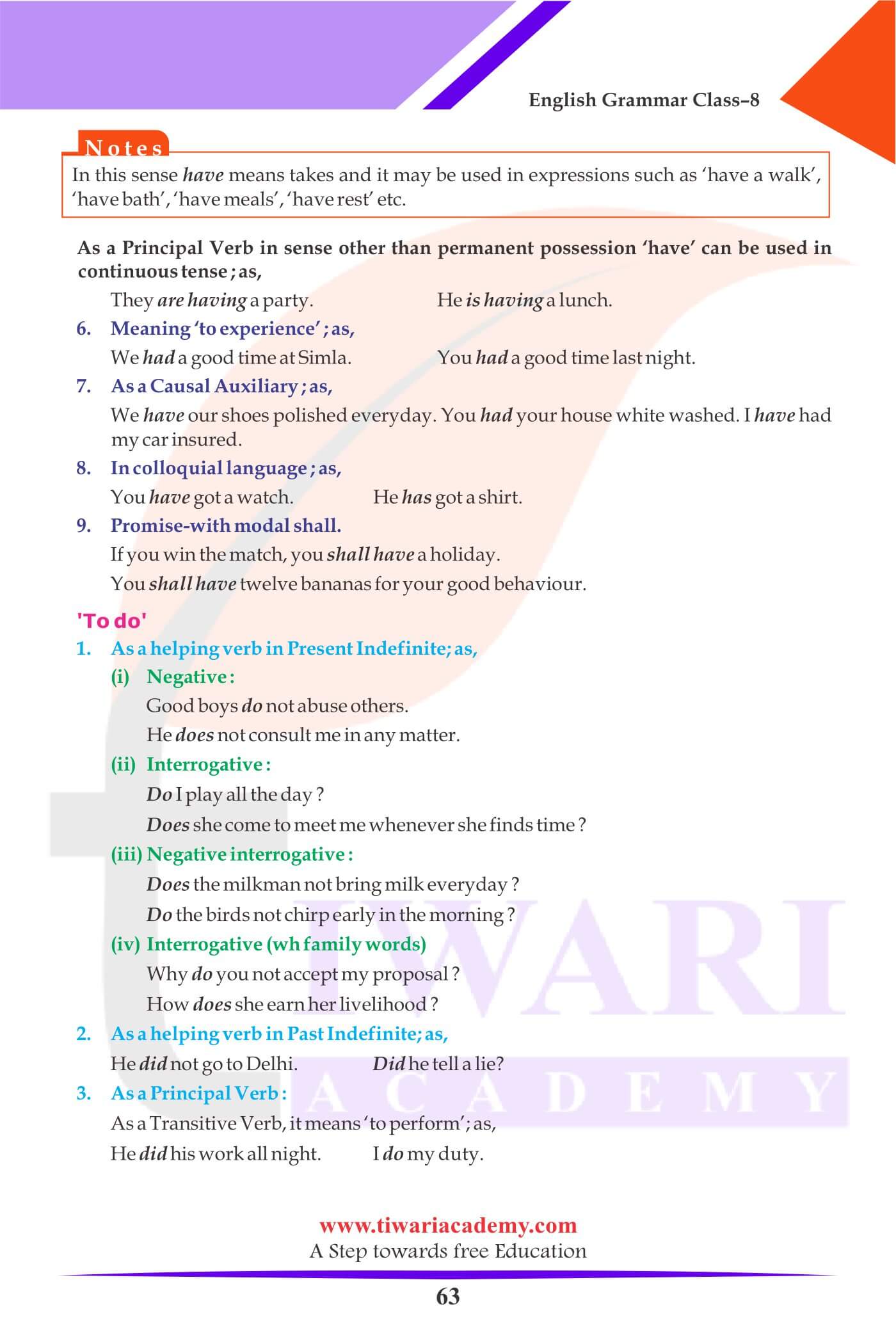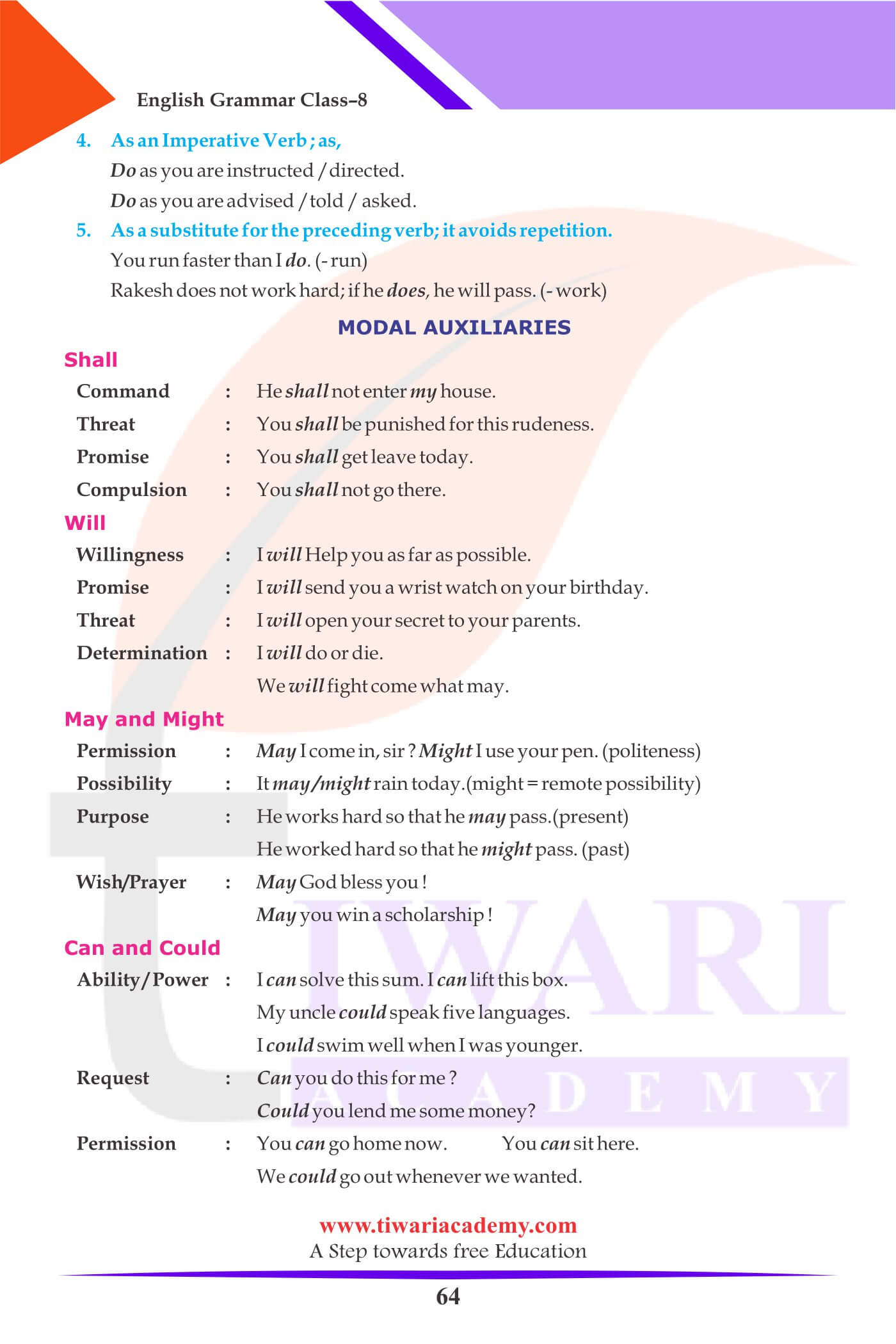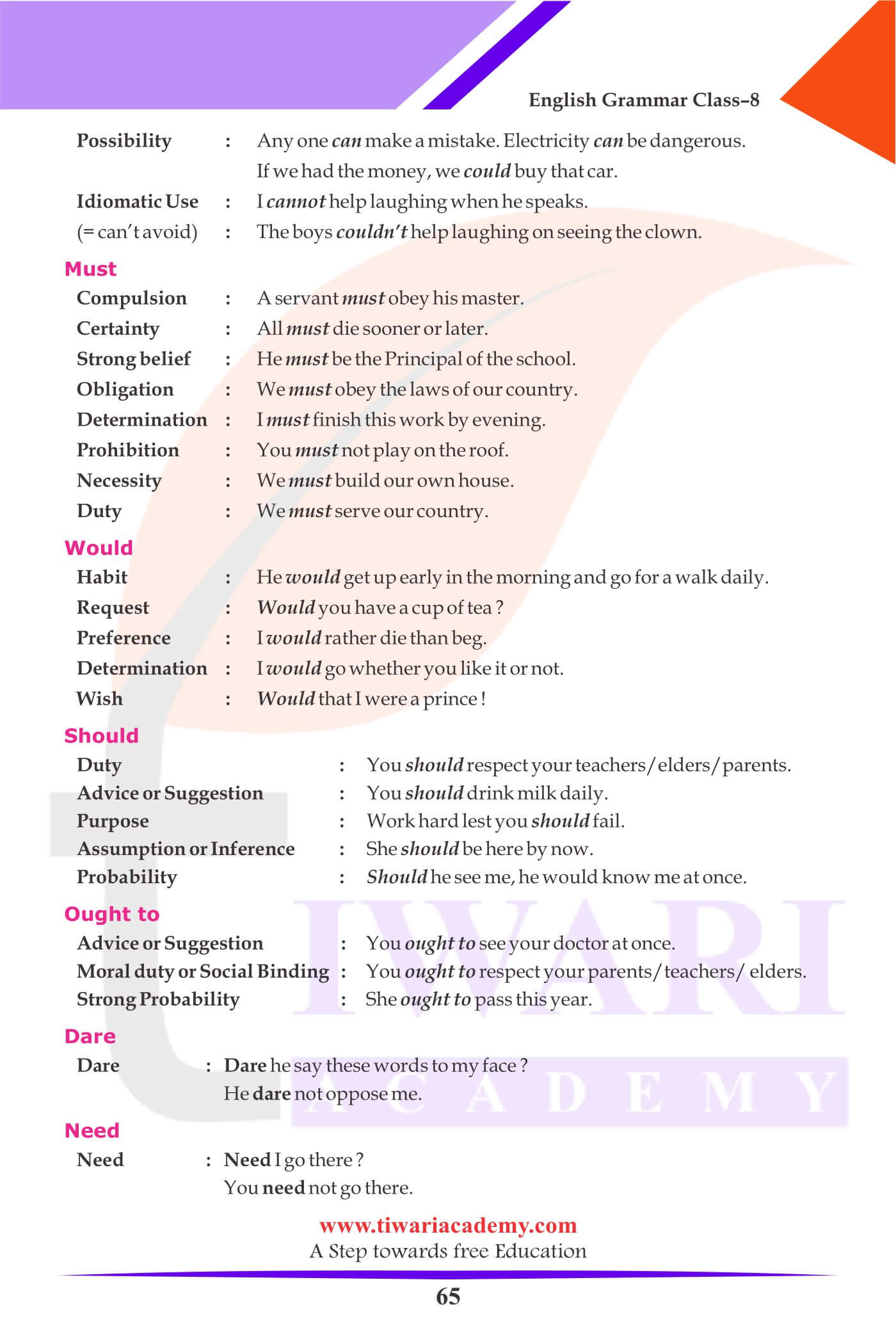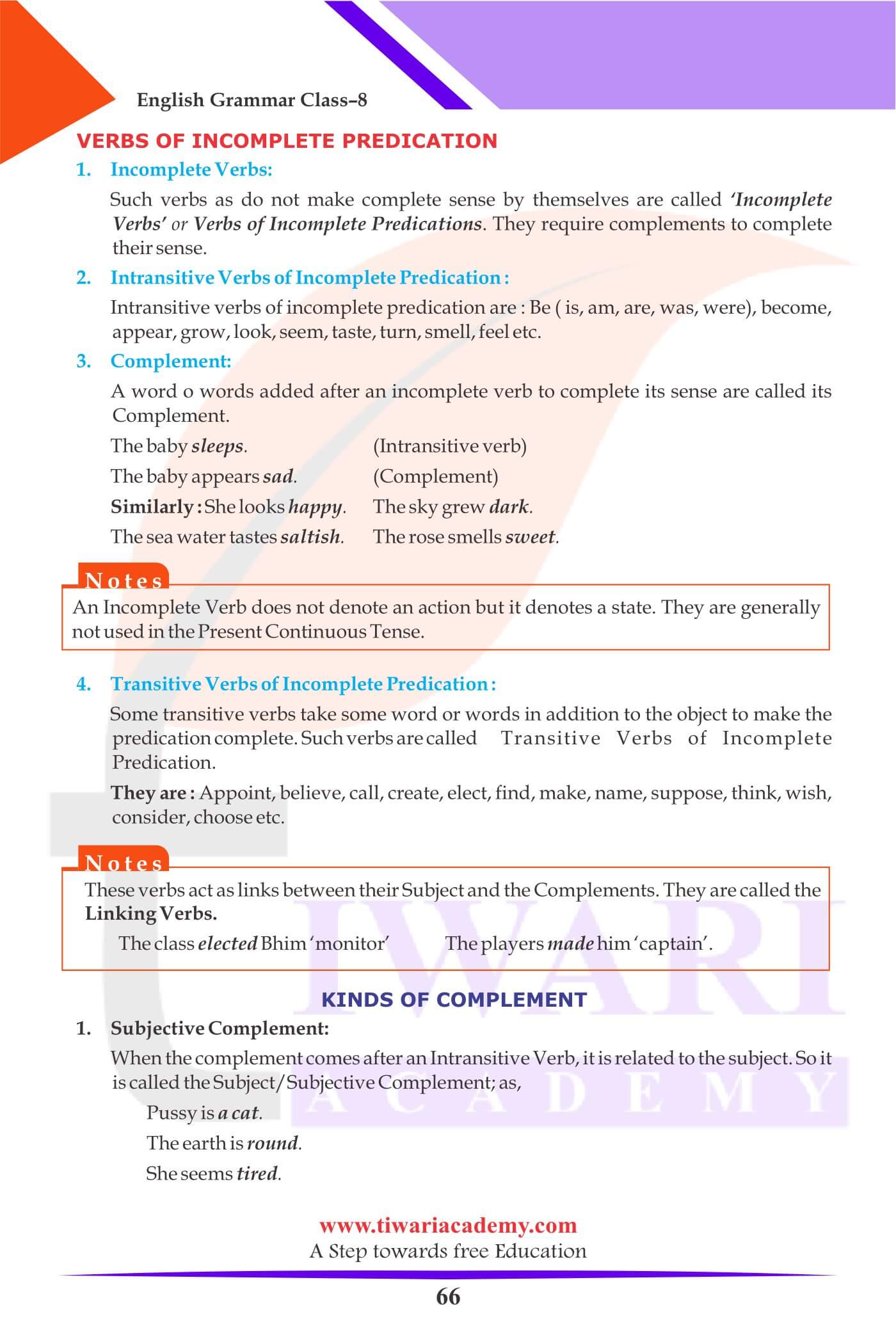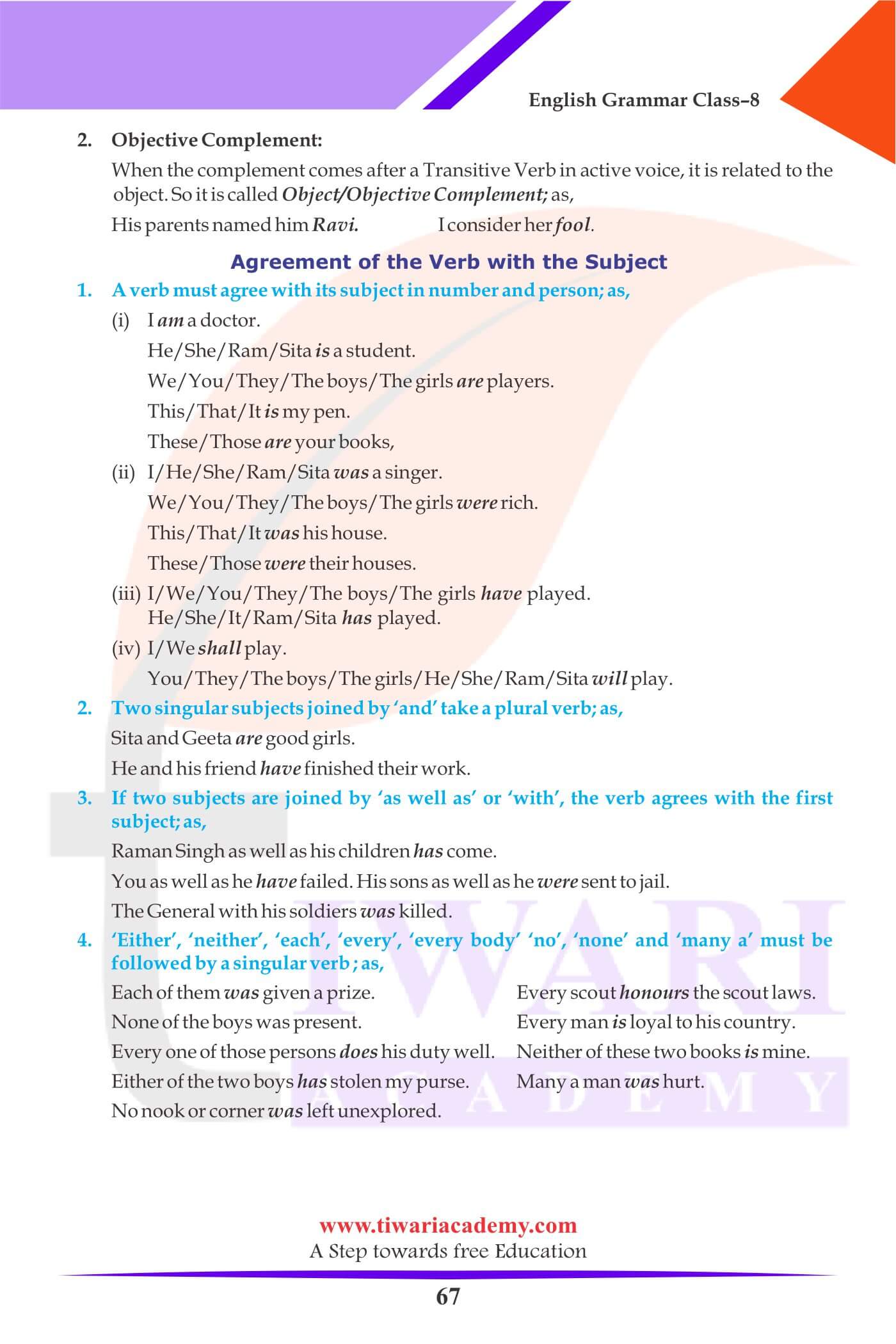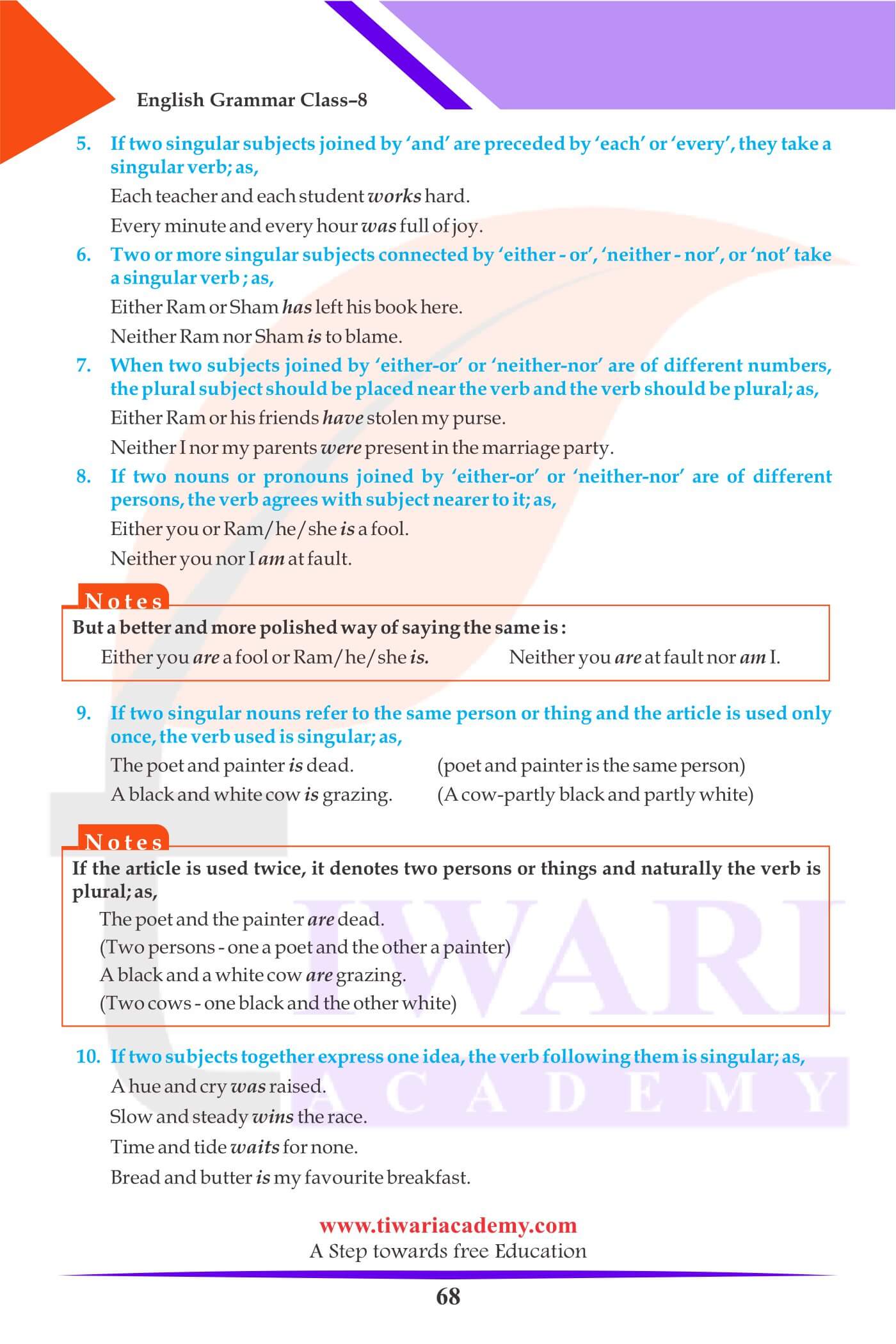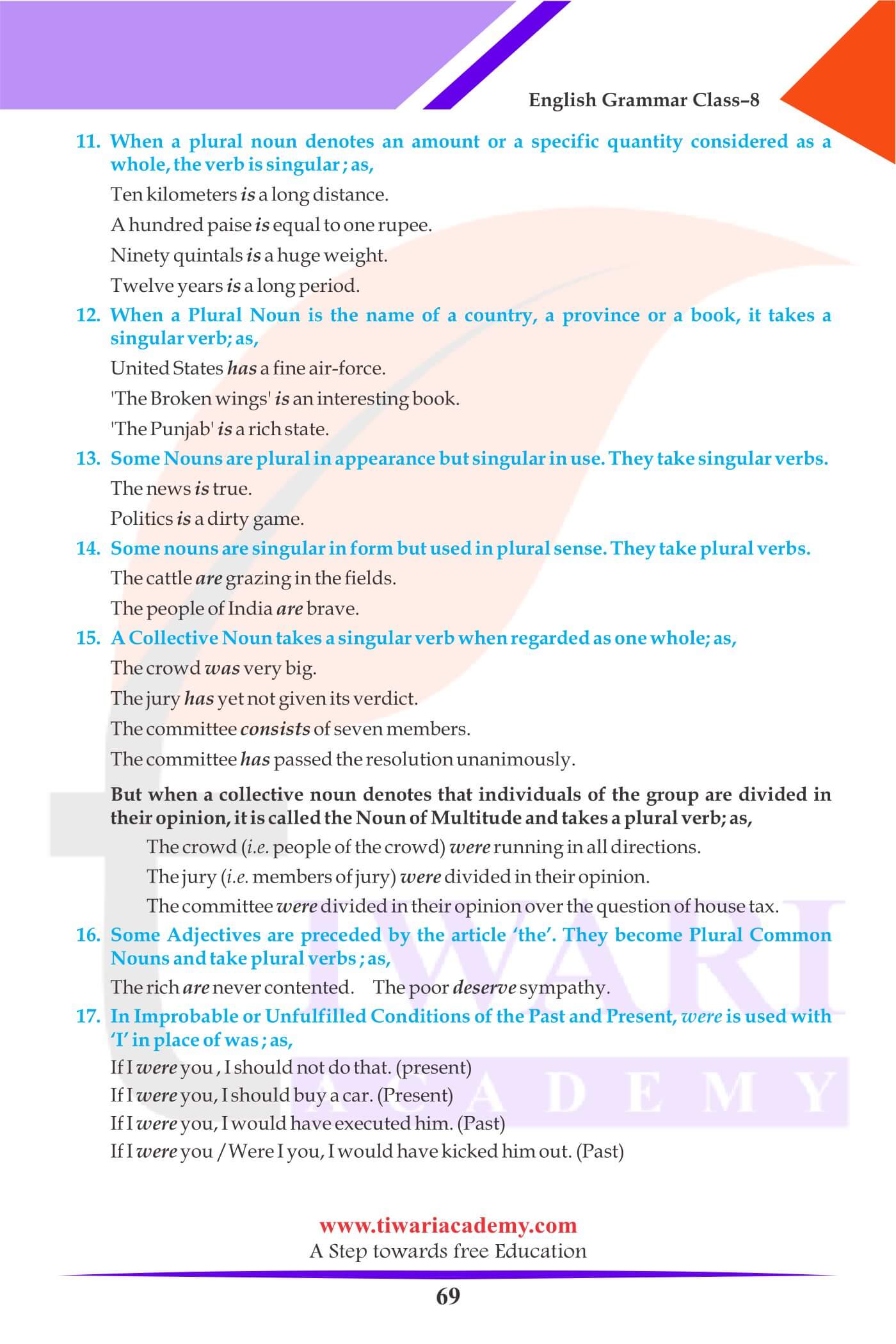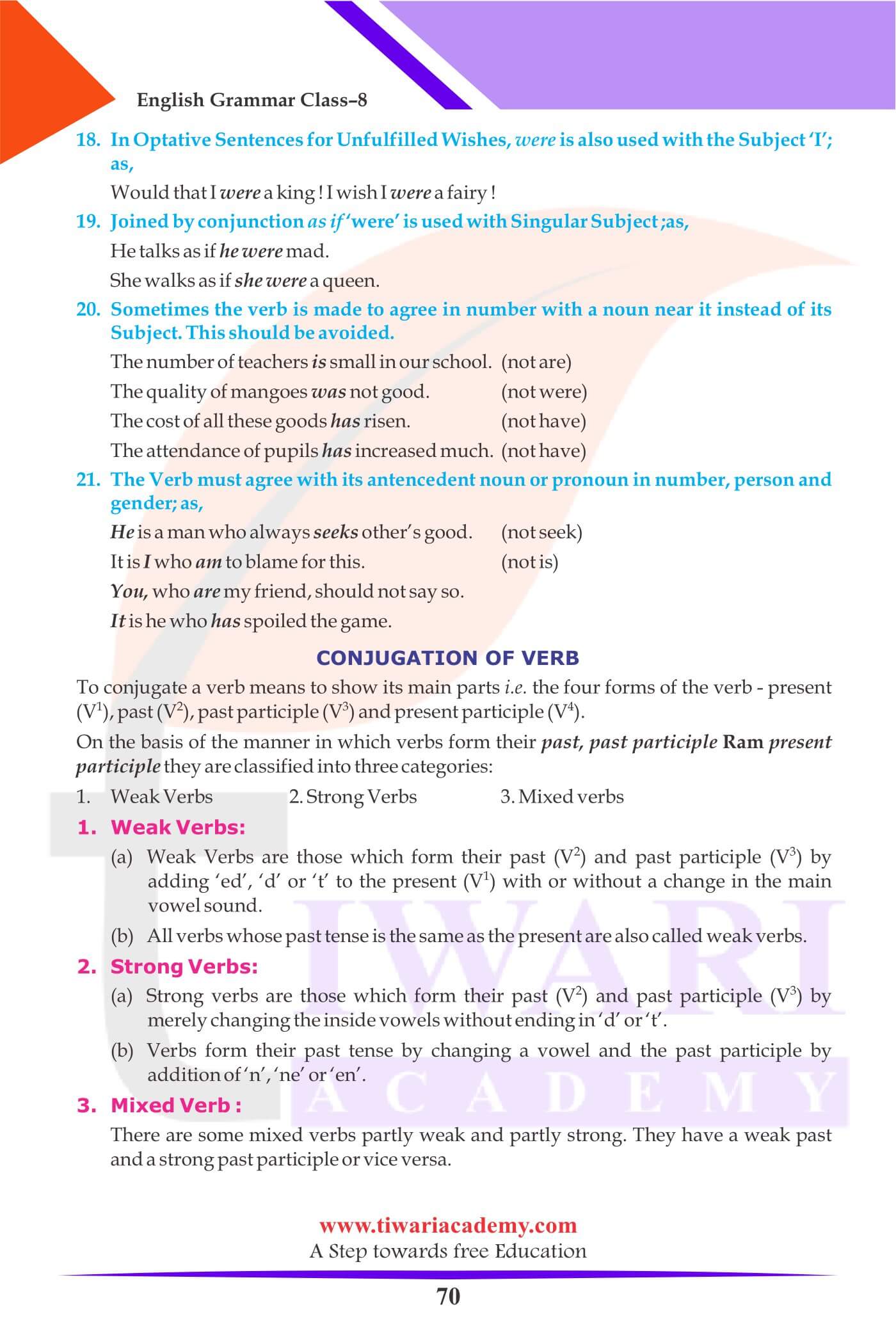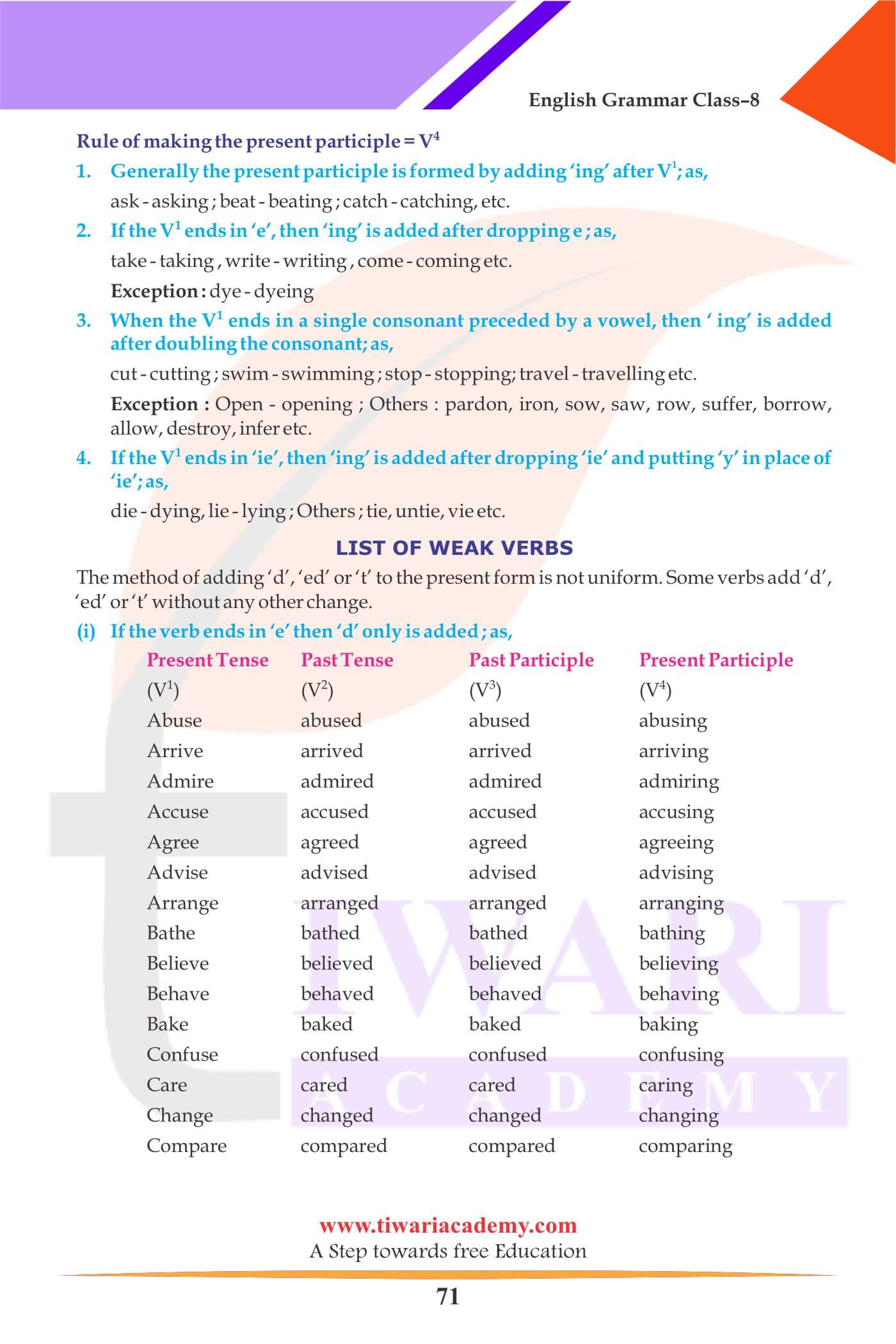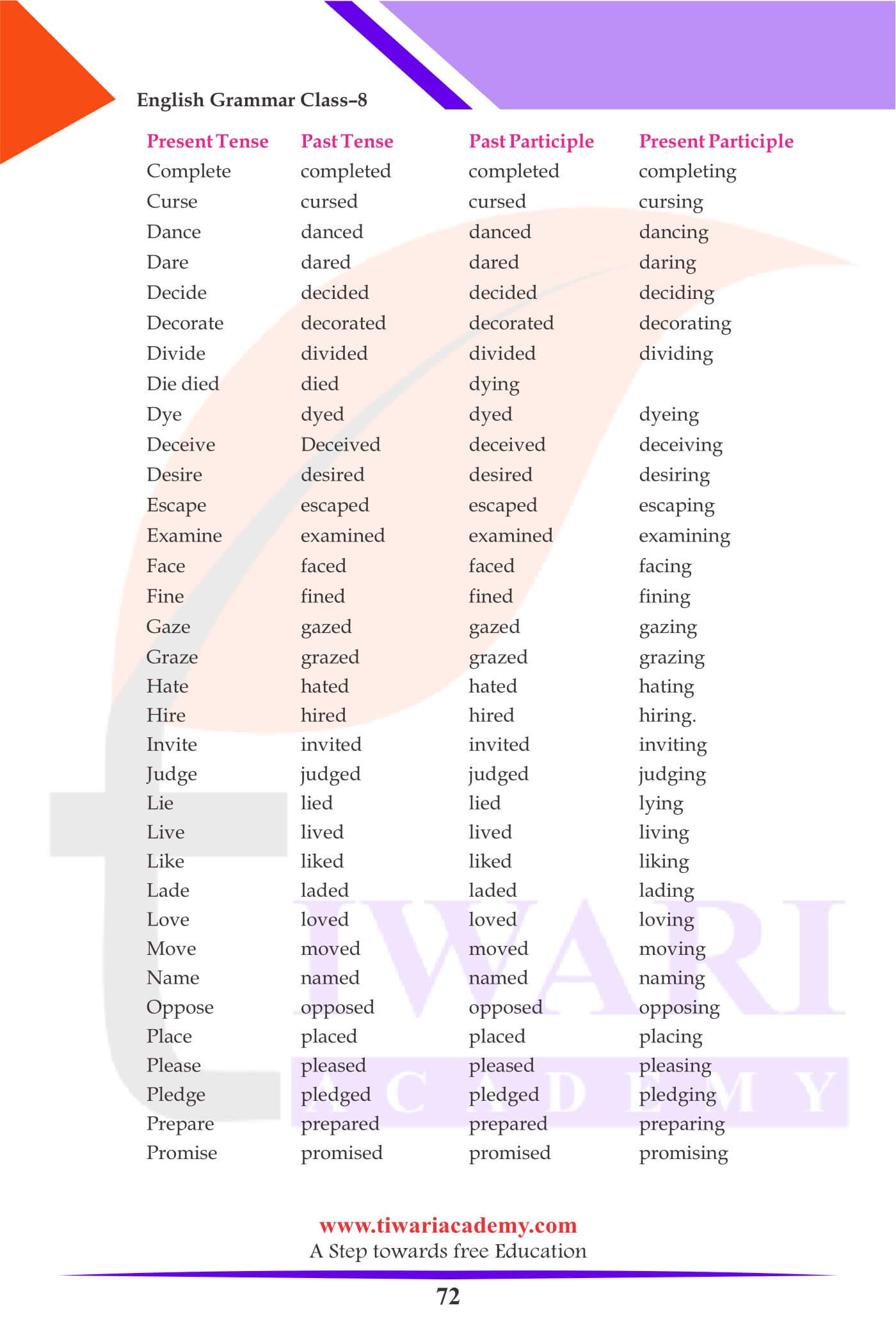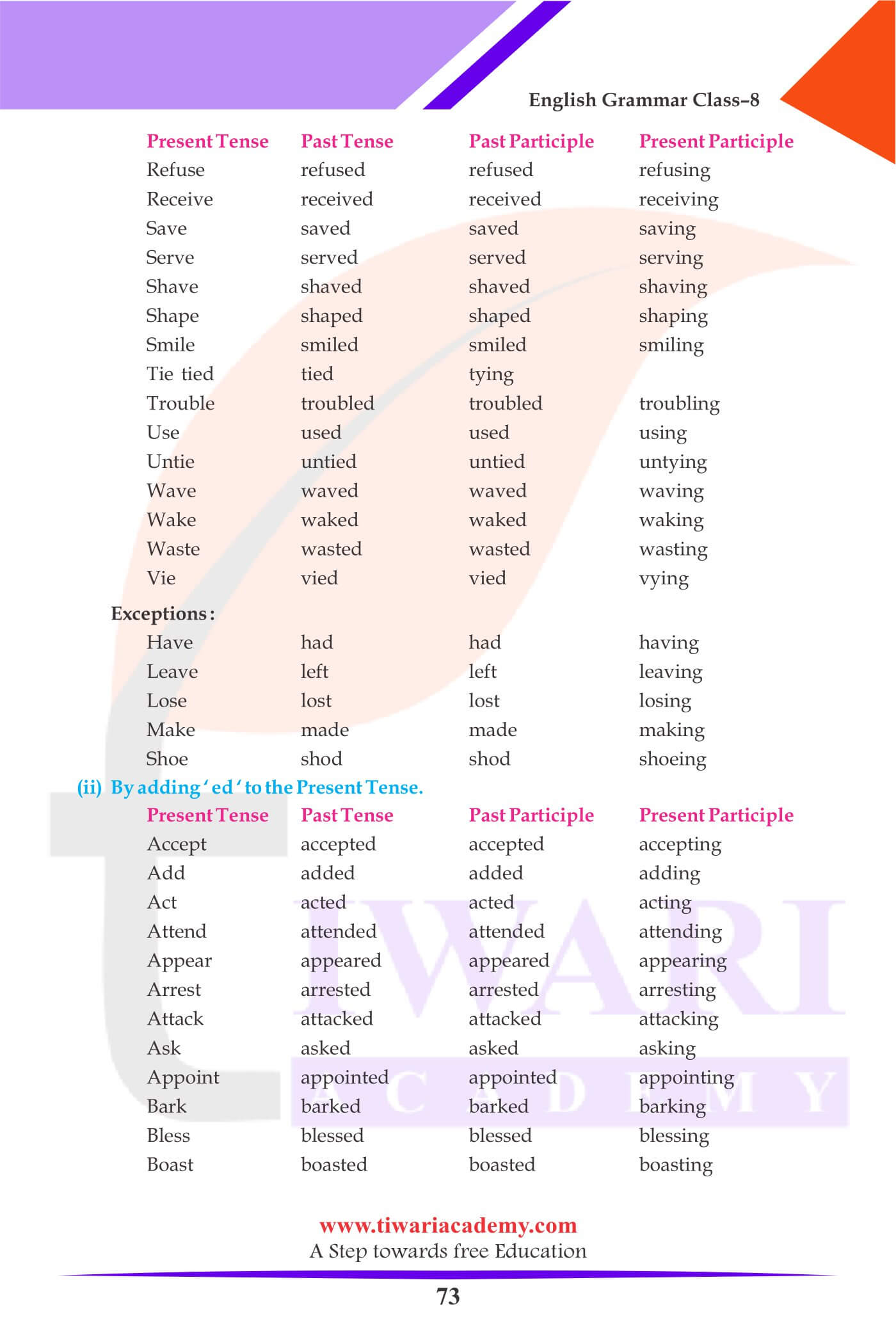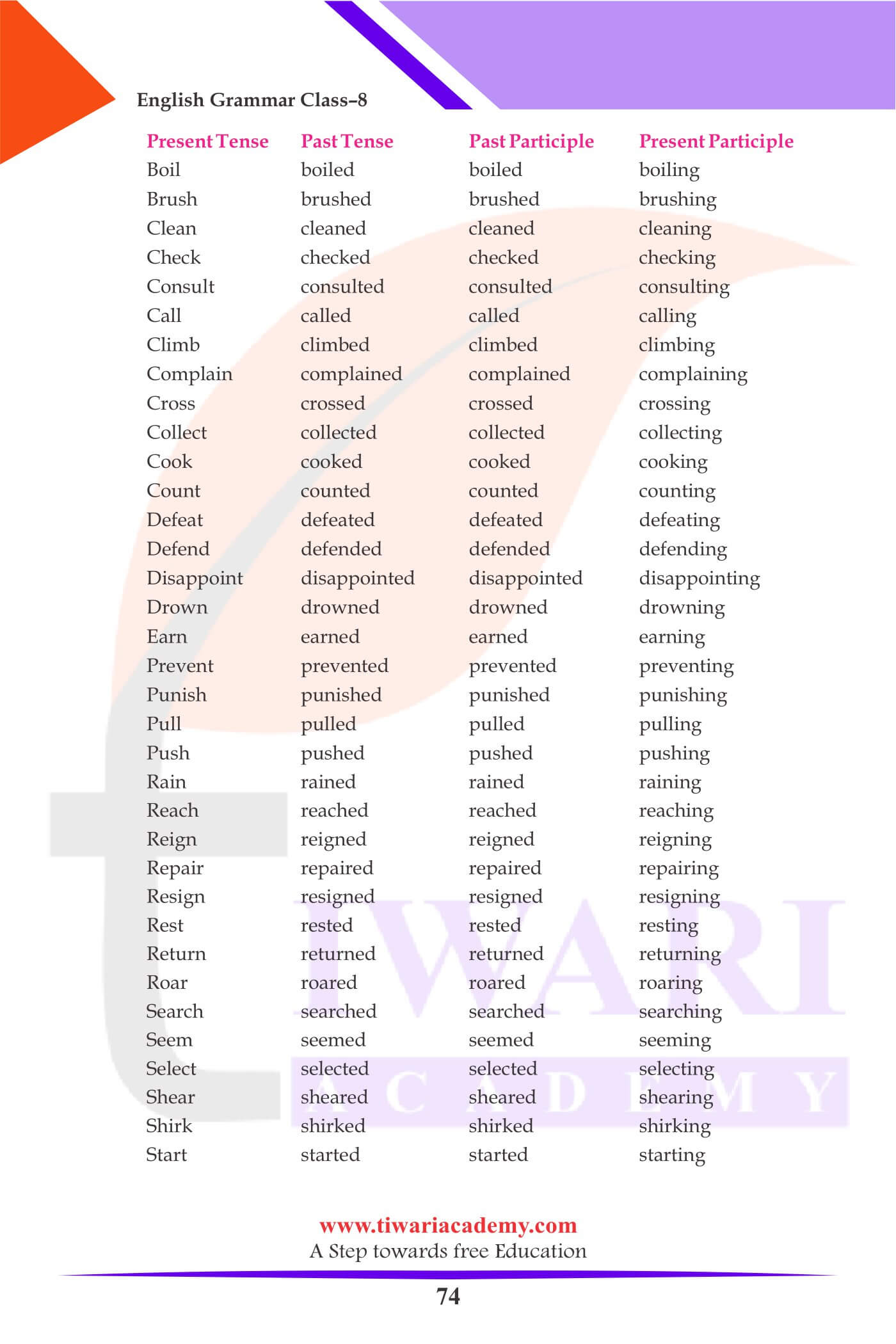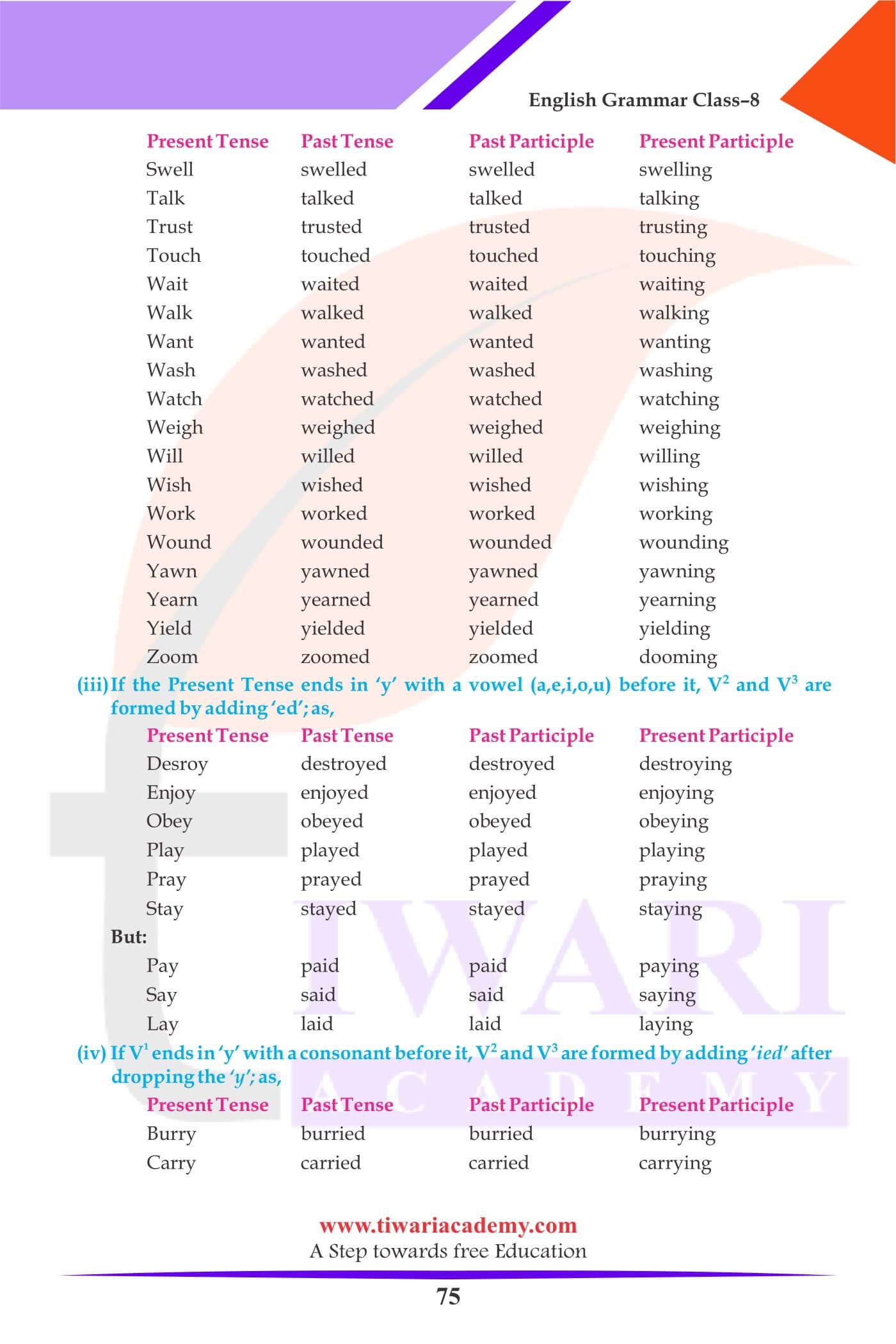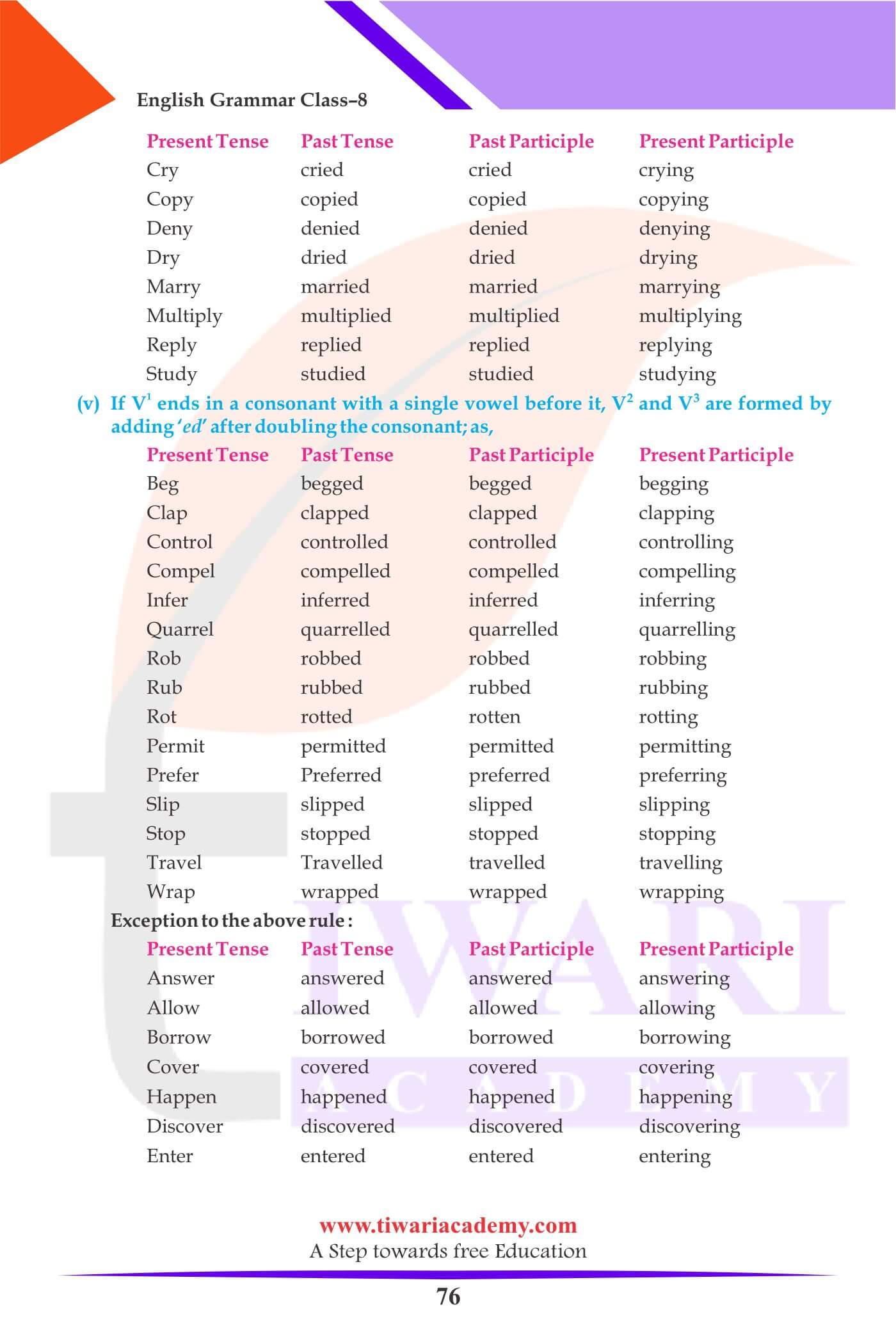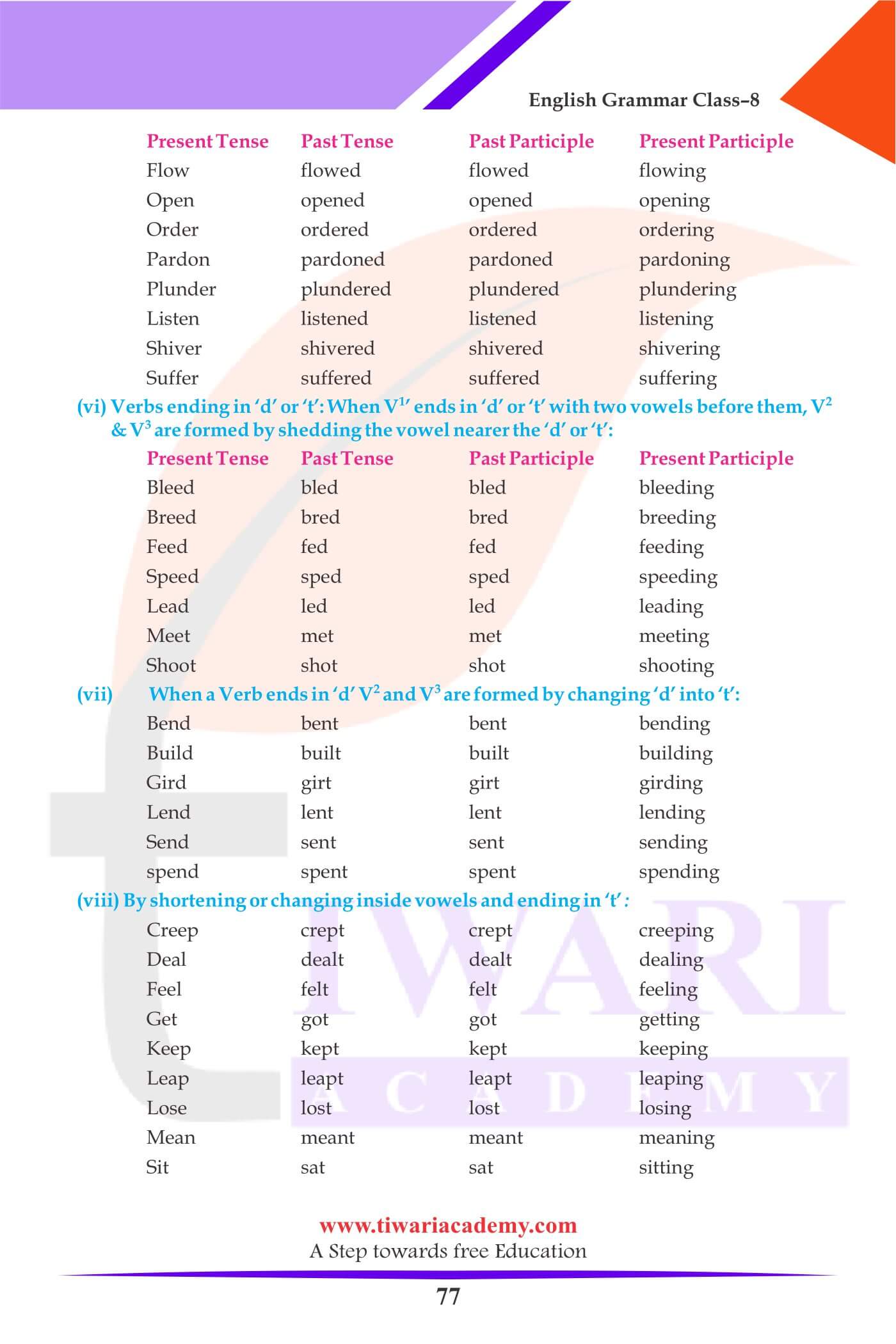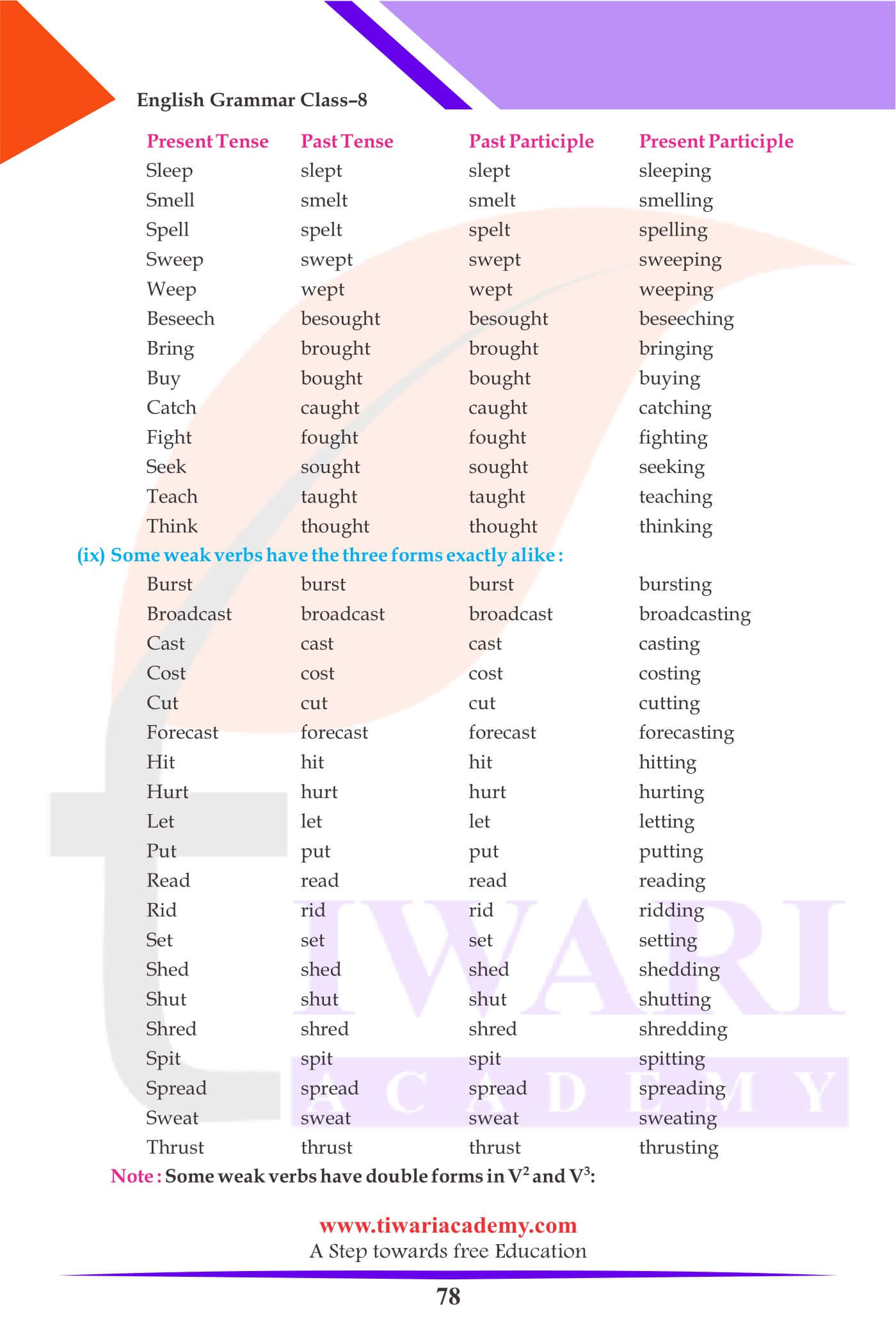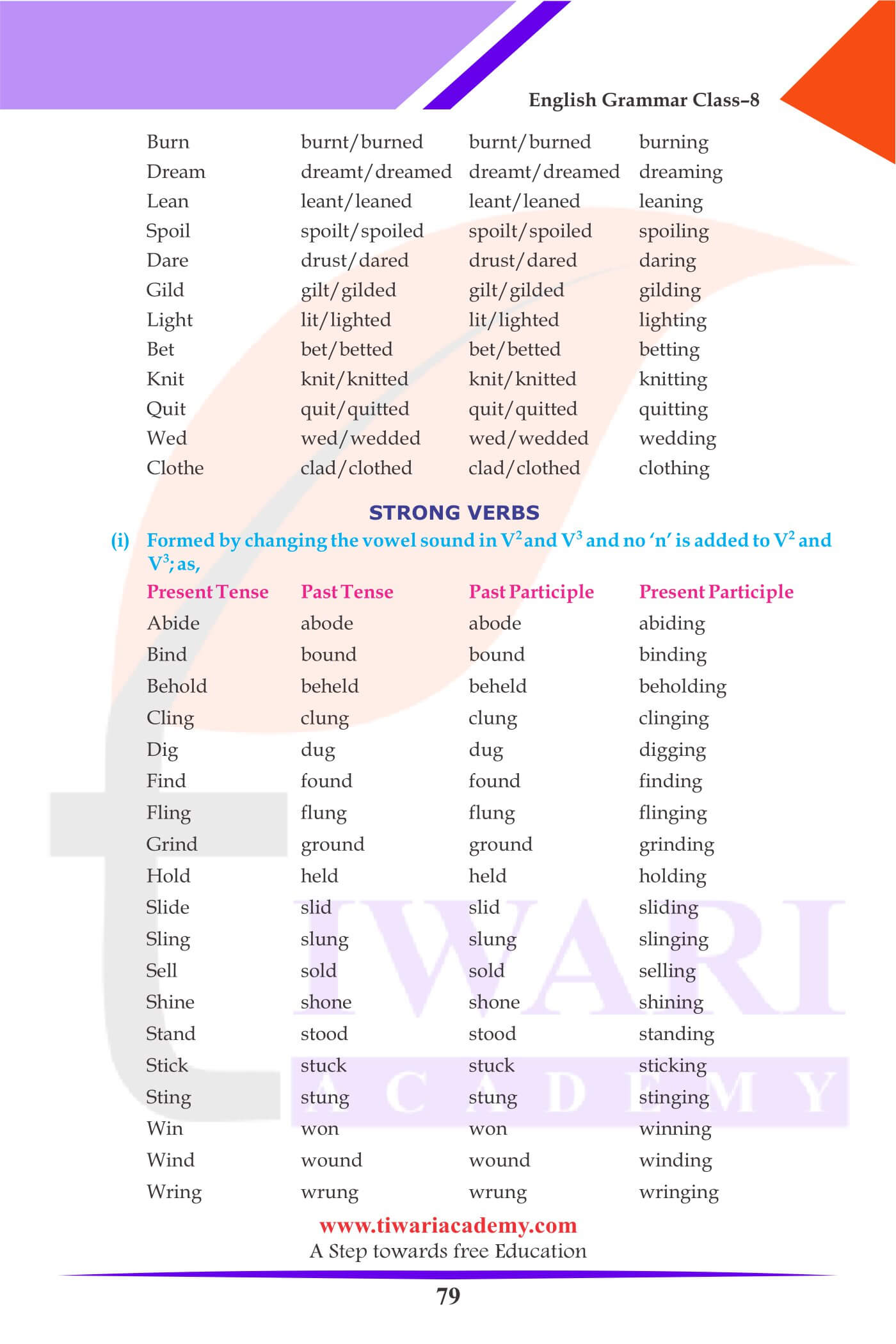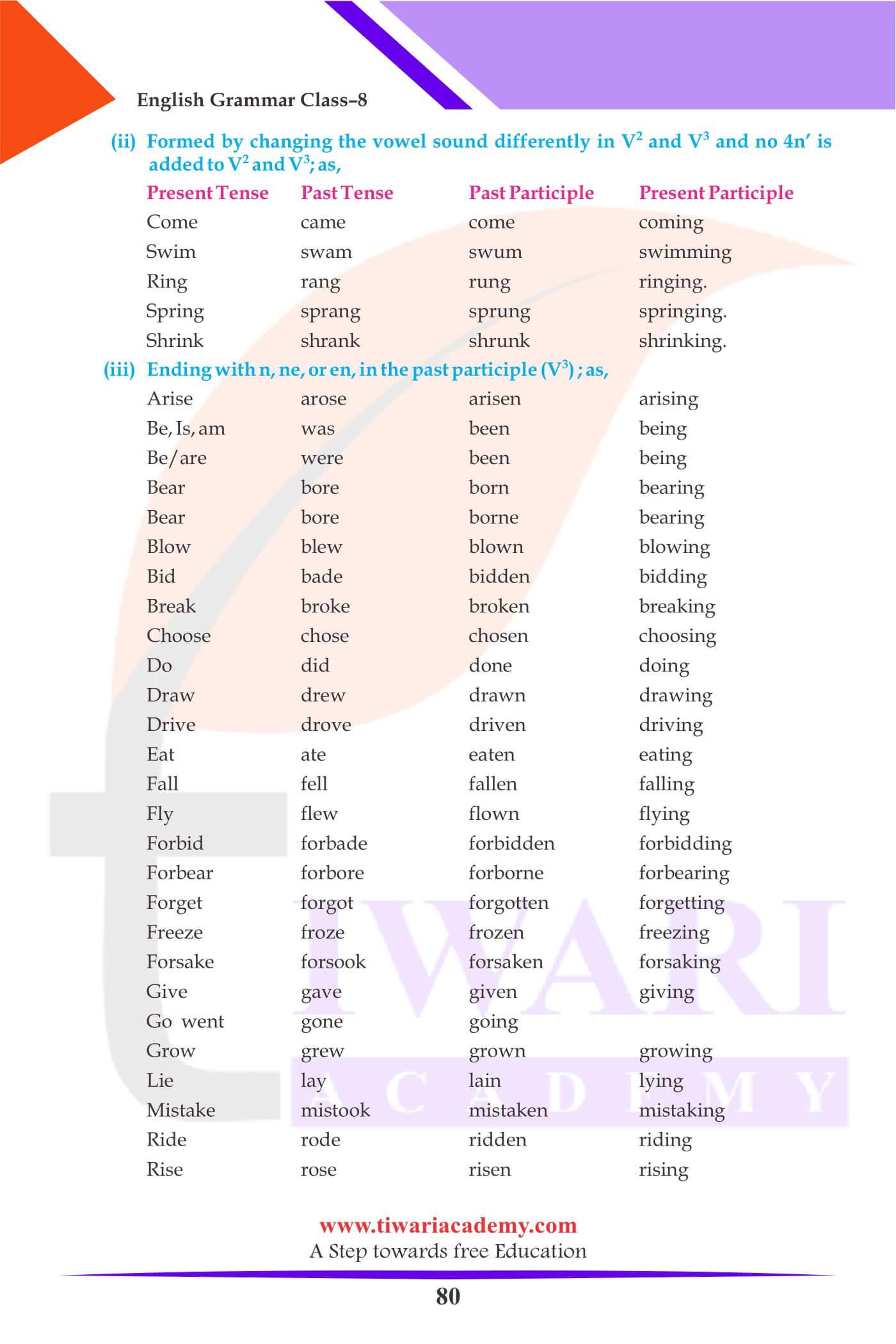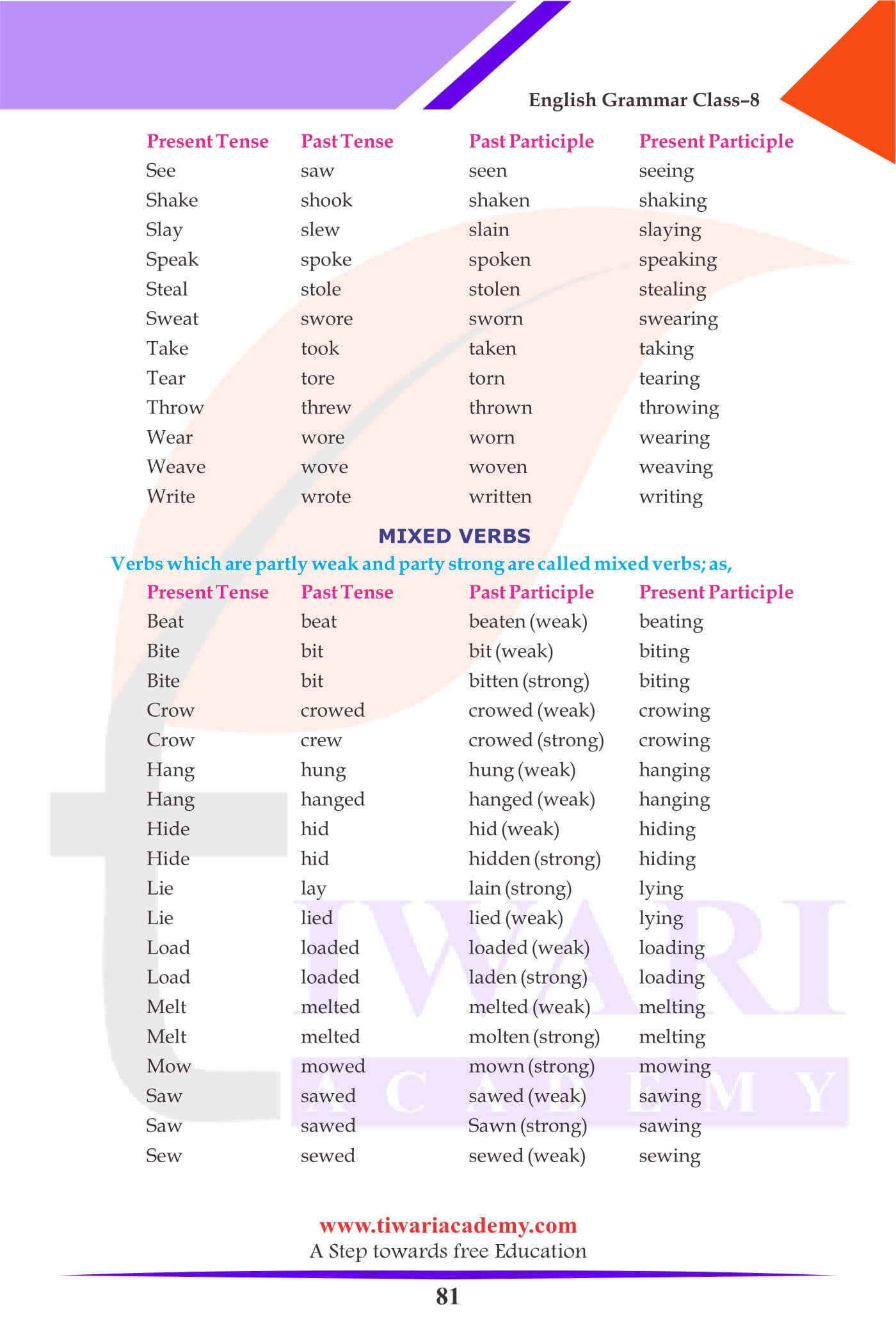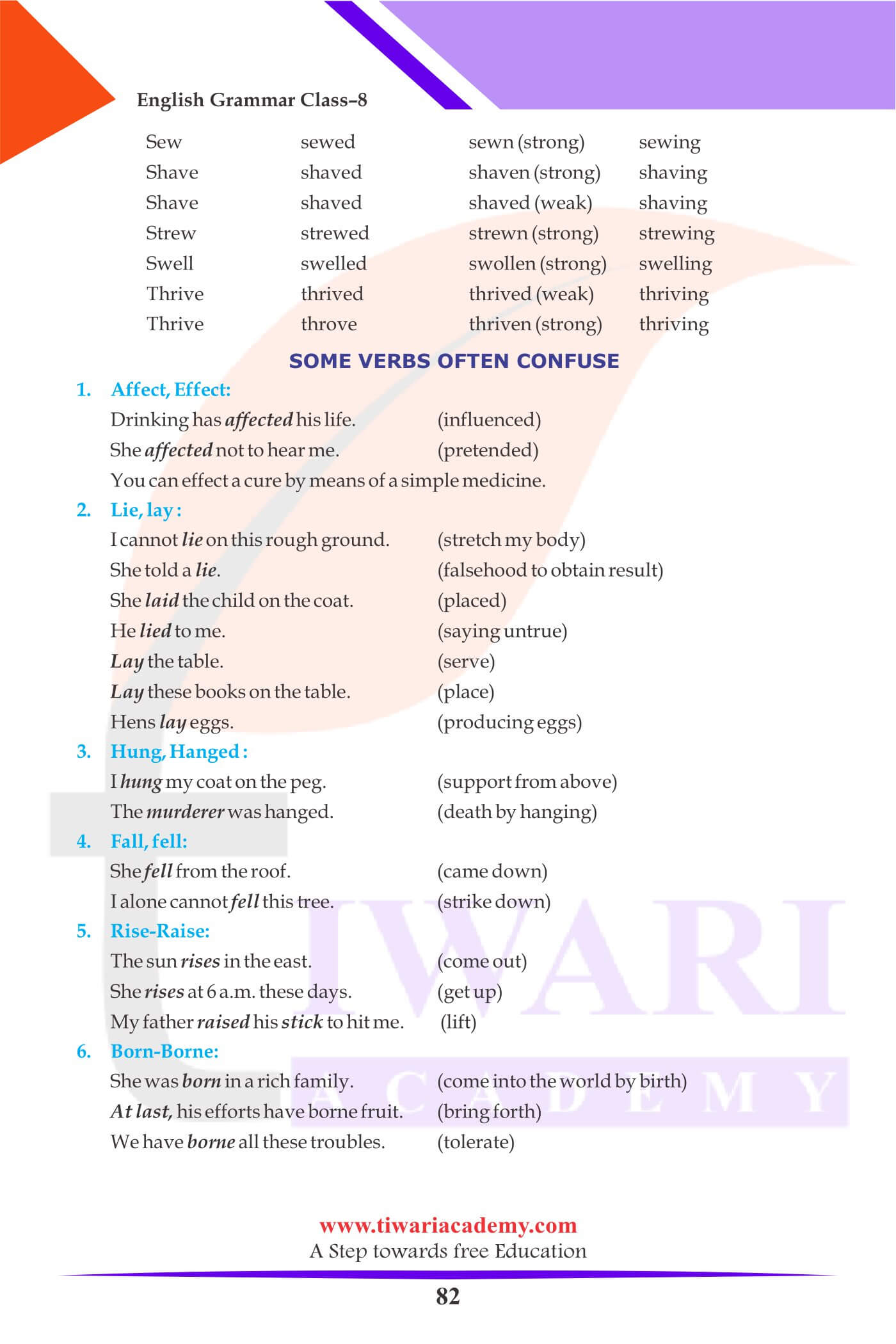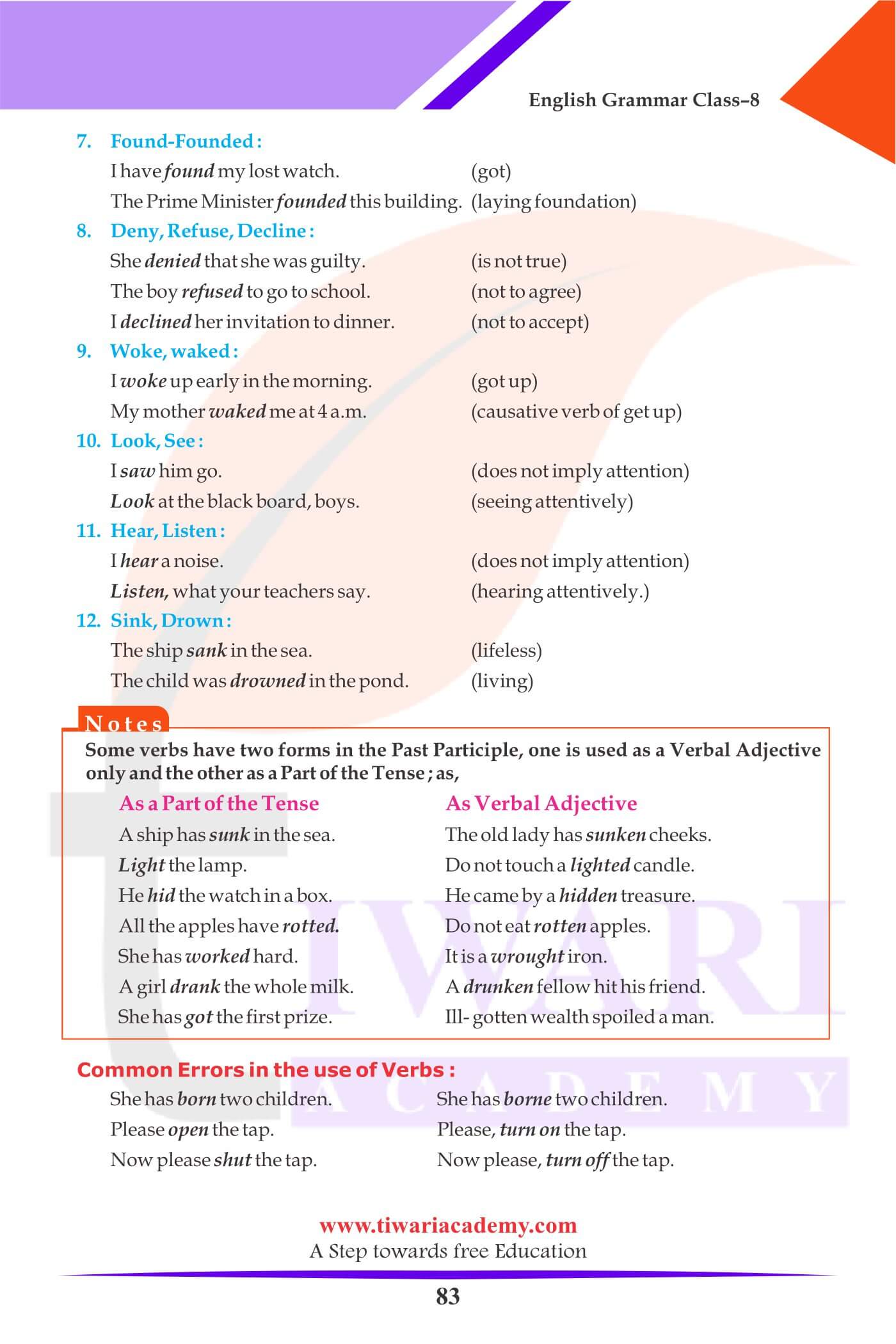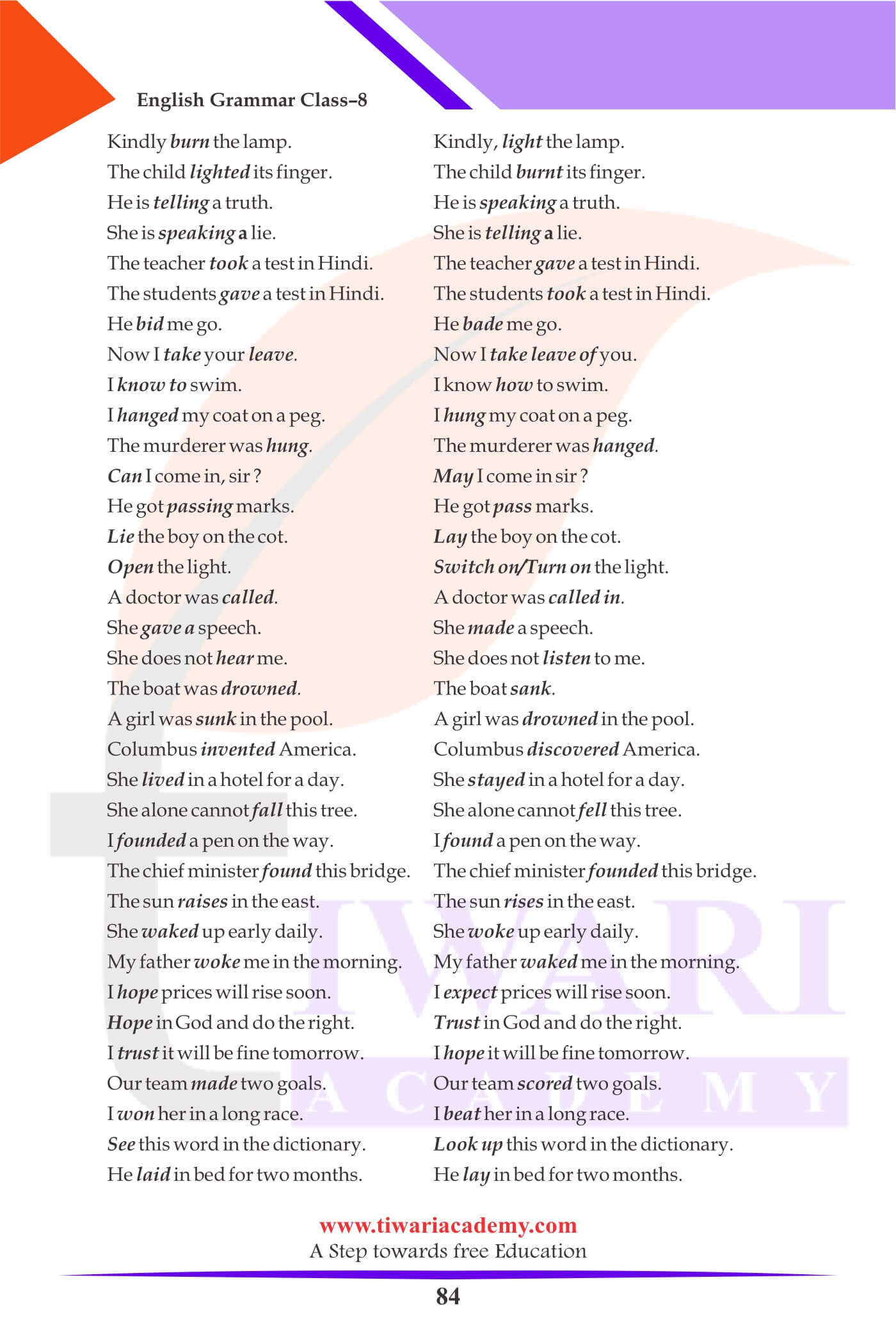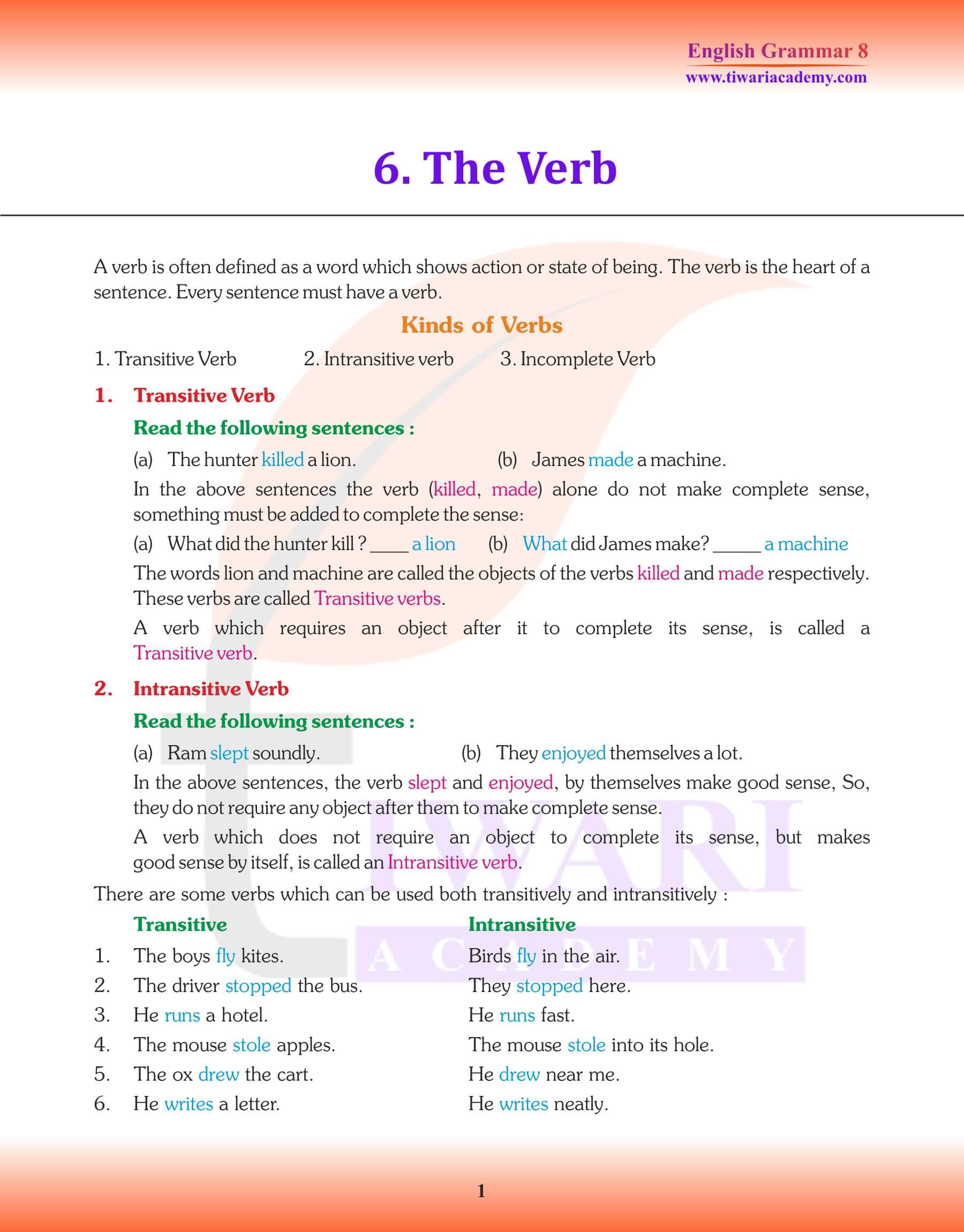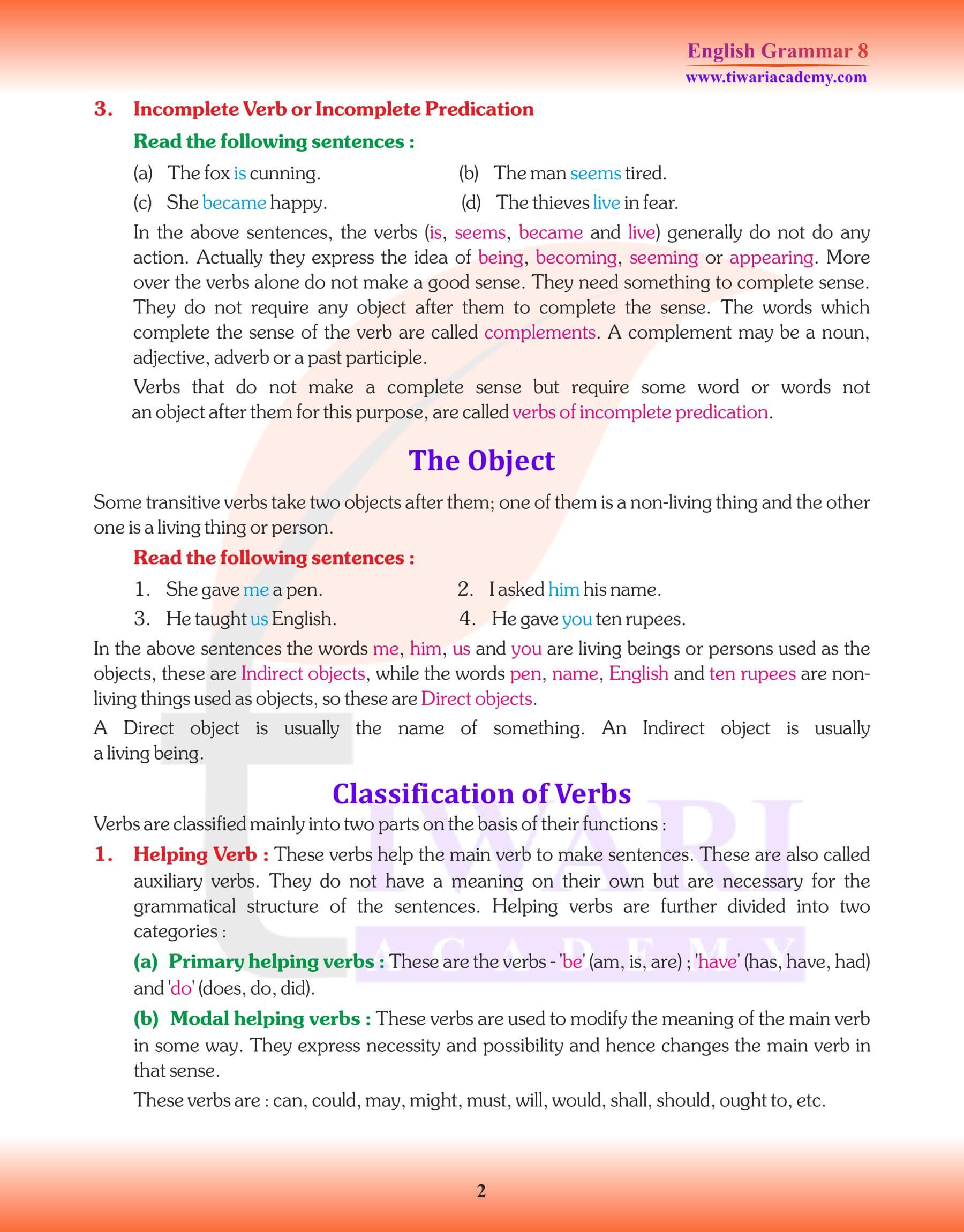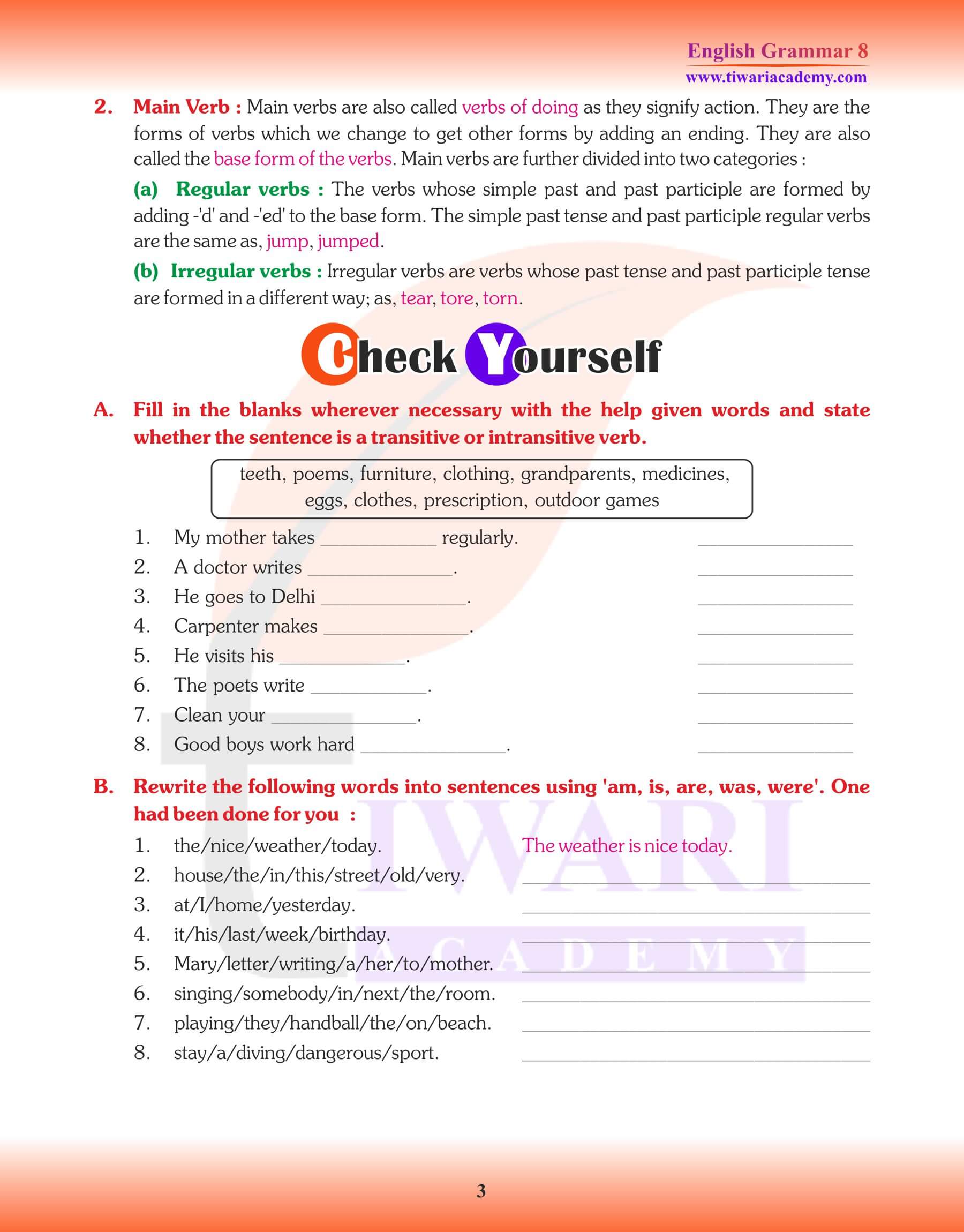Class 8 English Grammar Chapter 6 The Verb. The Verb is a word that expresses an action, a feeling, possession, state of being or existence. It tells about the Subject something. For example, The dog barks (action), Mayank flies a kite (action), I feel sorry (feeling), I have a goat (possession). There are three classes of verbs in English, Ordinary Verbs, Auxiliaries and Verbs of incomplete Predication.
Chapter 6 of the Class 8 English Grammar series takes students on an explorative journey into the dynamic world of ‘The Verb.’ These essential building blocks of language are far more than just mere words; they breathe life into sentences, depict actions, capture emotions, and illustrate states of being. As learners journey through the depths of verbs, they discover that these powerful entities aren’t just there to complement the subject, but in many cases, they define the entire essence of a statement.
At a glance, verbs may seem straightforward, representing actions or states. Consider sentences like ‘The dog barks,’ where ‘barks’ demonstrates an action, or ‘Mayank flies a kite,’ showcasing another form of activity. Then, there’s the emotive dimension of verbs, as seen in ‘I feel sorry,’ a sentiment resonating with many. Additionally, verbs can also imply possession, as evident in the statement, ‘I have a goat.’
| Class: 8 | English Grammar |
| Chapter: 6 | The Verb |
| Books: | Textbook and Revision Notes |
| Academic Session: | 2024-25 |
Kinds of Finite Verbs
1. Transitive Verbs
2. Intransitive Verbs
3. Auxiliary Verbs
Transitive Verbs
A Transitive Verb is one which has an Object as,
1. I write a letter.
2. They like sweets.
3. He beat Amit.
4. The boys are making a noise.
5. I know him well.
Intransitive Verbs
An Intransitive Verb is one which has no object. It denotes an action which does not pass over to an object, or which expresses a state or being as,
1. The sun rose (action).
2. The baby sleeps (state)
3. There is a good smell in this flower. (being)
Intransitive Verbs Used Transitively
(a) Some Intransitive Verbs are followed by a noun which is similar in meaning to the Verb. It is called Cognate Object as, They have fought a good fight. (fight verb – fight noun).
(b) The following are examples of partially Cognate Objects as, He ran a great risk.
(c) When an Intransitive Verb is used in a Causative Sense, i.e. in the sense of causing a thing to be done, it becomes Transitive.
| Intransitive | Transitive |
|---|---|
| The horse walks. | He walked the horse. |
| Birds fly. | Ram flies a kite. |
| He burnt with shame. | He burnt his finger. (cause to burn) |
| The glass broke. | He broke the glass. |
| Rice grows in the field. | Farmer grows rice in the field. |
The English language, with its intricate layers, doesn’t just stop there. Diving deeper into the subject, the chapter reveals that there are three primary classes of verbs:
- Ordinary Verbs: These are the standard verbs we encounter daily, representing an array of actions, emotions, and states.
- Auxiliaries: Often referred to as helping verbs, auxiliaries assist main verbs in conveying tenses, moods, voices, and other verb forms. They’re the unsung heroes, refining the nuances of a statement.
- Verbs of Incomplete Predication: These verbs, while significant, need additional words to complete their meaning within a sentence.
Educational platforms like Tiwari Academy emphasize the importance of grasping ‘The Verb’ in its entirety. Their NCERT Solutions and dedicated resources help illuminate this topic, offering students an in-depth understanding, ensuring they’re well-equipped to use verbs effectively and with confidence.
There are a few Intransitive Verbs in which the causal sense is indicated by a change of some vowel.
| Intransitive | Transitive |
|---|---|
| The tree falls. | The wood cutter fells the tree with an axe. |
| Lie still. | Lay the table. |
| Rise early. | Raise your hands. |
| Sit here. | I set the books in order. |
Auxiliary Verbs
An Auxiliary Verb is a helping verb. It helps the Principal or Main Verb to form a Tense, Mood or Voice.
(i) Primary or Chief Auxiliary
(ii) Modal Auxiliary
(i) Primary/Chief/Main Auxiliaries: Be, have and do are Primary Auxiliaries. They can come alone and so they are called Chief Auxiliaries.
(ii) Modal Auxiliaries: do not change their form according to the number and person of their subject. They express the mode or manner of actions denoted by the Main Verb.
They also express ideas of ability, possibility, probability, permission, obligation, duty, necessity, certainty, habit in the past and present also.
They are: shall, will, should, would, can, could, may, might, must, need, dare, ought to and used to.
Conjugation of Verb: To conjugate a verb means to show its main parts i.e. the four forms of the verb – present, past, past participle and present participle.
On the basis of the manner in which verbs form their past, past participle and present
participle they are classified into three categories:
1. Weak Verbs
2. Strong Verbs
3. Mixed verbs
List of Weak Verbs: The method of adding “d”, “ed” or “t” to the present form is not uniform. Some verbs add “d”, “ed” or “t” without any other change.
If the verb ends in “e” then “d”’ only is added
| Present Tense | Past Tense | Past Participle |
|---|---|---|
| Abuse | abused | abused |
| Arrive | arrived | arrived |
| Admire | admired | admired |
| Agree | agreed | agreed |
In summary, Chapter 6 isn’t just a lesson in English Grammar—it’s an initiation into the art of eloquent expression. By mastering verbs, students open up a world of rich communication, painting vivid imagery with their words.
STRONG VERBS
| Present Tense | Past Tense | Past Participle |
|---|---|---|
| Abide | abode | abode |
| Bind | bound | bound |
| Behold | beheld | beheld |
| Find | found | found |
